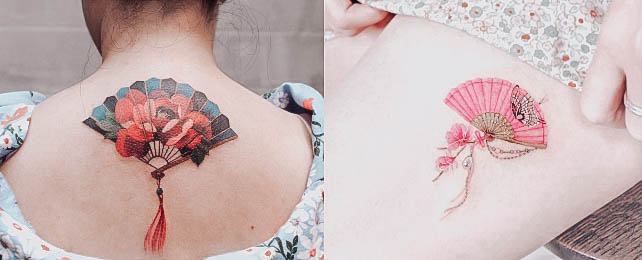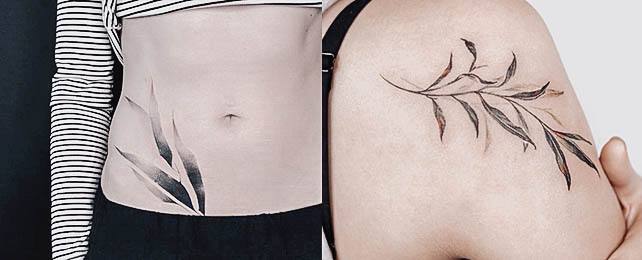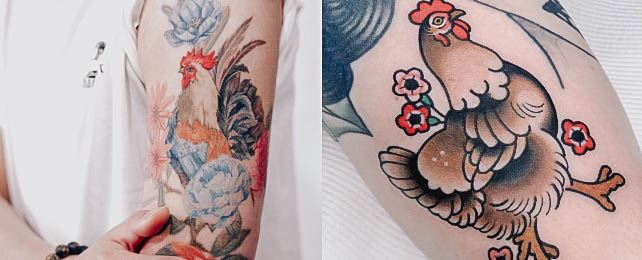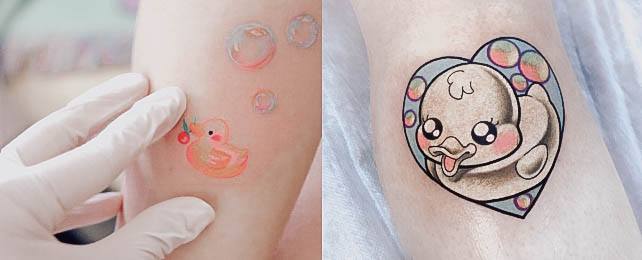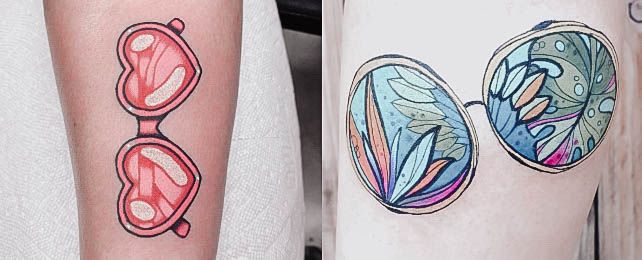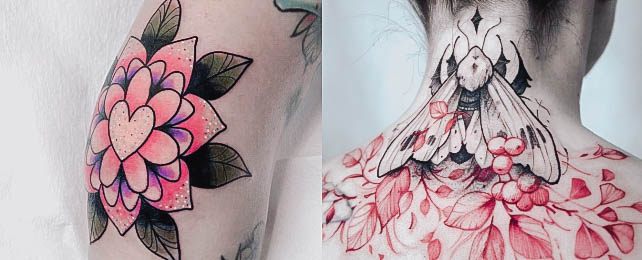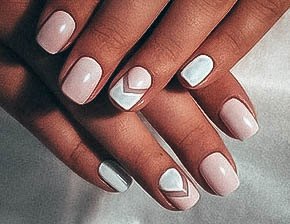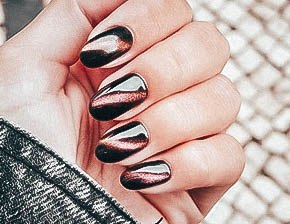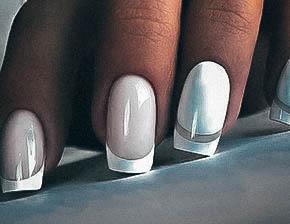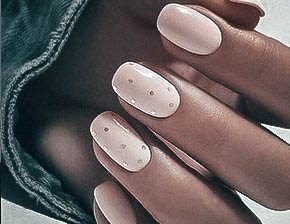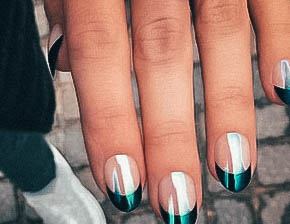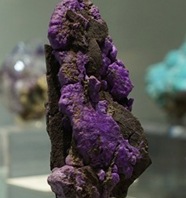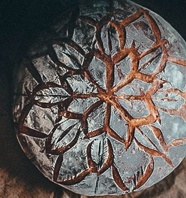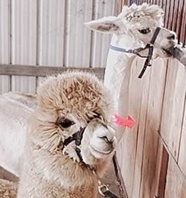The Japanese fan tattoo was very popular during the Edo period, and these tattoos were made by artists who had strong ties to the history of Japan.
They were highly popular among women because they represented their feminine side, but they were also very common among men.
Uchiwa tattoos represent honor, virtue and elegance, all of which go well with the traditional meaning of Japan. These tattoos can also be customized by changing the background color or adding some art or images behind them. They can be done in full color or in the traditional form of black and white.
There are many variations of the uchiwa tattoo design, so you have a lot of options to choose from. You could also use a revised version of this tattoo or choose your interpretation. These tattoos are a great way to show off your love for Japan, and you can also customize them according to your personality and style!
Uchiwa tattoos can be used to show your love for Japan while also giving you the opportunity to express yourself. These tattoos have a long history and come from a very rich culture, which is why they are still popular today. They are also great if you want something simple and elegant.
This design can also be used to stand out from the crowd and make a statement since it’s not one of those tattoos that are done by many. If you love Japanese culture, this is one of the best tattoo designs for you.
A short history on the Uchiwa:
Uchiwa, commonly referred to as a fan in English, is an ancient Japanese handheld fan that has been in use for over two thousand years. The earliest known example of an Uchiwa dates back to the 3rd century BC and was found in the Asuka region of Honshu. In Japan, the Uchiwa is believed to be one of the oldest tools used by humans, with its origins dating back millennia.
The traditional Uchiwa was made from thin layers of bamboo and had a round shape that resembled a bowl or plate. It was often decorated with colorful pictures depicting nature or other designs. The handle was made of wooden strips that were wrapped together with a thin rope. The Uchiwa could be opened and closed like an umbrella and was used to create cooling breezes or disperse smell of incense during religious ceremonies. It could also be used as a defensive weapon against arrows and spears, or as a signaling device.
Throughout its long history, the Uchiwa has been associated with numerous traditions, symbols, and customs that remain in Japan today. In the early days of its use, the Uchiwa was often decorated with floral motifs and images that represented spirituality and good luck. This tradition can still be seen in modern day Uchiwas which are decorated with sakura blossoms or other symbols of luck such as dragons and cranes. The colors chosen for these designs often have symbolic meaning such as red for passion and joy, yellow for nobility, or blue for serenity.
The Uchiwa also has spiritual significance in Japan, where it is thought to evoke the energy of Amaterasu Omikami (the sun goddess). Legend says that when she hid away from her brother Susanoo-no-Mikoto (the god of storms), an Uchiwa appeared from the depths of the sea to bring her back out into the light. This story has become closely tied to the Uchiwa’s ability to bring about good fortune by dispersing bad spirits and negative energy.
In addition to its symbolic meanings, the Uchiwa also has practical applications as well. In feudal Japan, it was commonly used by samurai warriors during battles to ward off arrows and spears by creating cooling winds on their armor. It was even occasionally used as a signaling device between different squads or armies on opposing sides of battle fields. This practice continues today in some parts of Japan where it is used during festivals to signal the start and end of performances.
Today, while it no longer serves as a defense mechanism against arrows or spears, the traditional Japanese Uchiwa still plays an important role in Japanese culture and society. Its presence at festivals and ceremonies adds color, beauty, respectability and charm to any event. Modern day Uchiwas are often made from paper or plastic instead of bamboo which makes them much more affordable than their traditional counterparts; but their symbolic meanings remain just as strong regardless of their material make up.
As both a tool for creating cooling breezes and dispersing scents as well as a symbol for luck and protection, the traditional Japanese Uchiwa has been a part of Japanese culture for over two thousand years; making it one of the longest lasting symbols in all of human history.
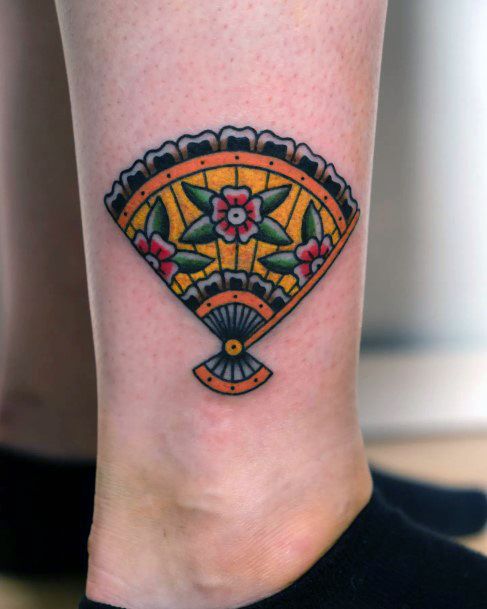
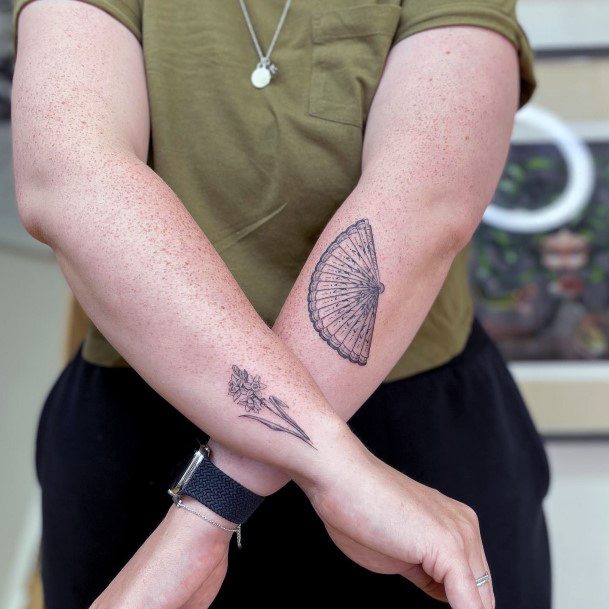
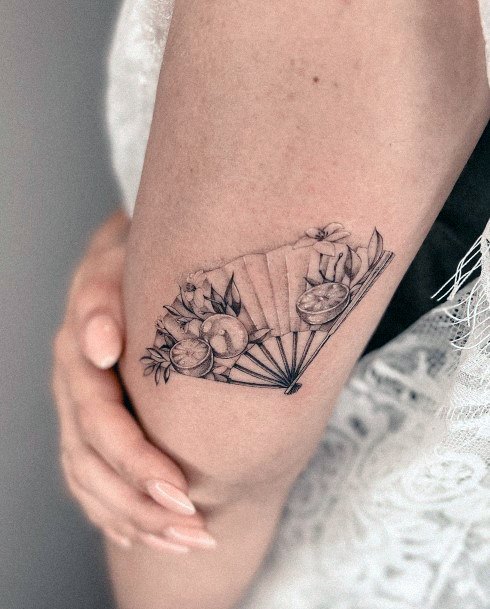
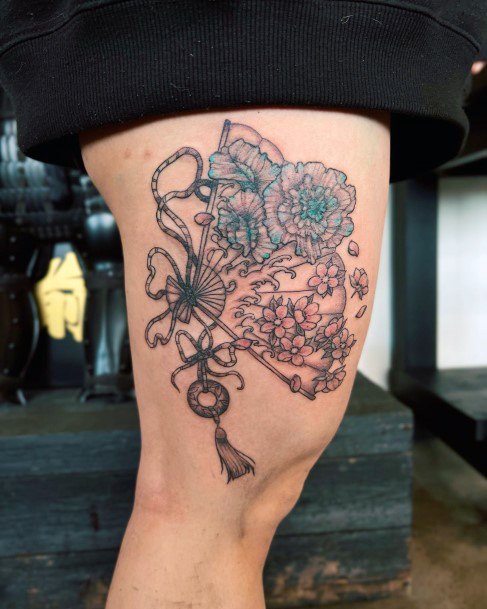
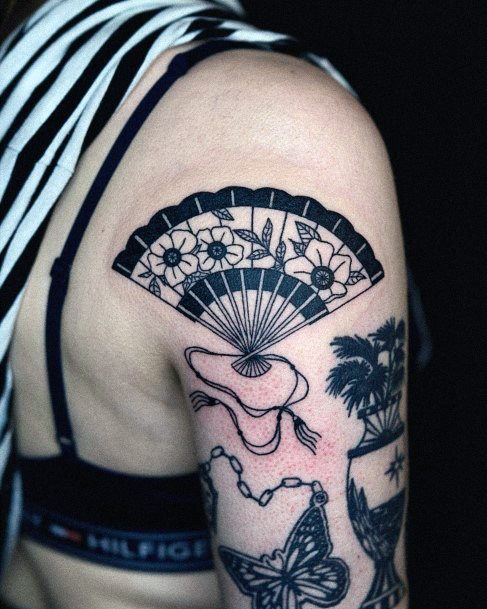
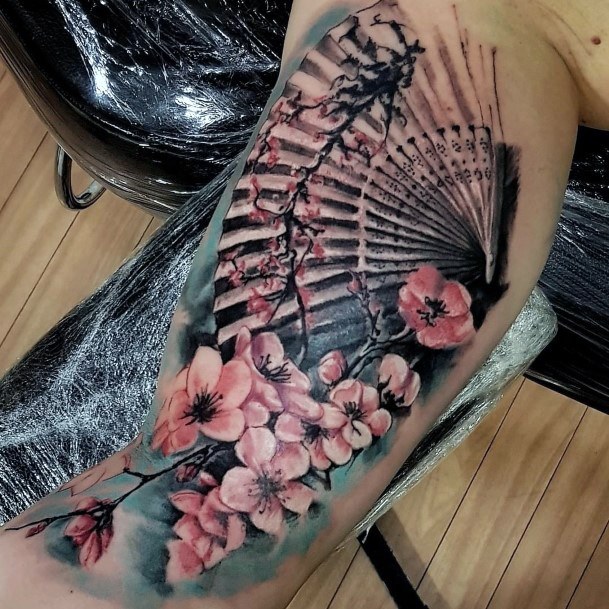
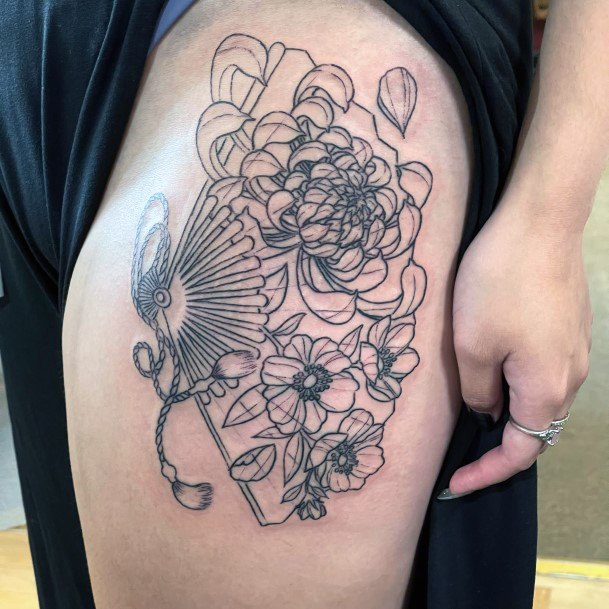
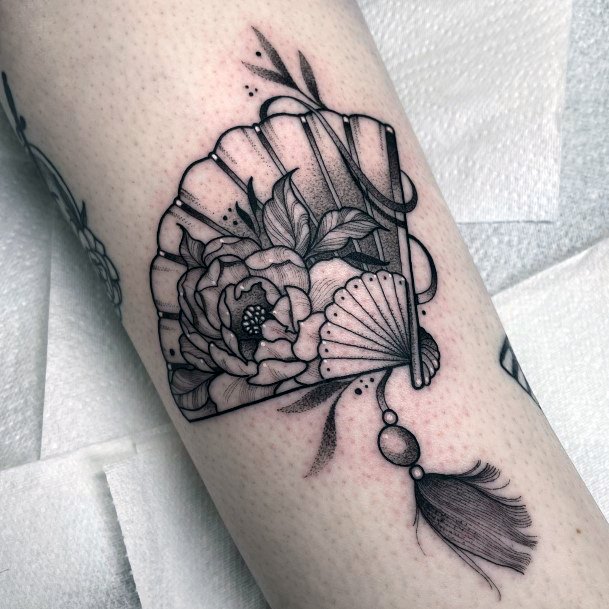
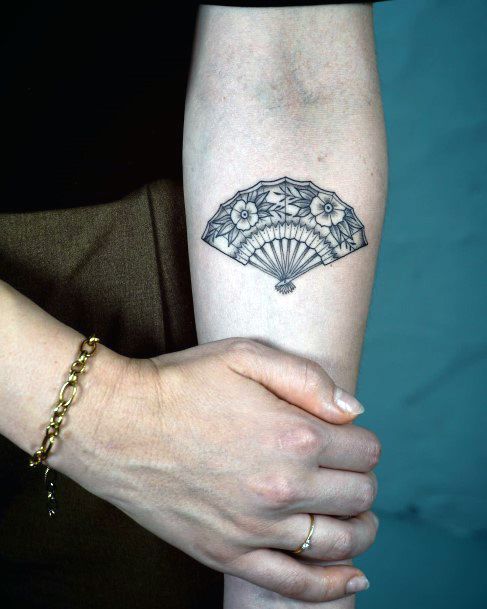
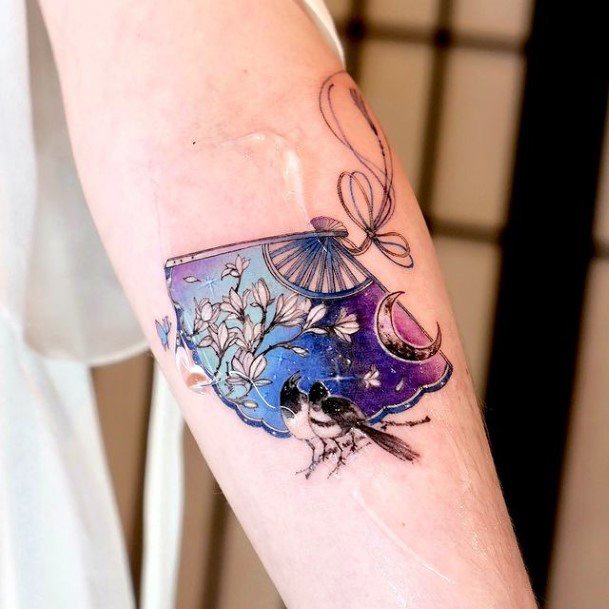
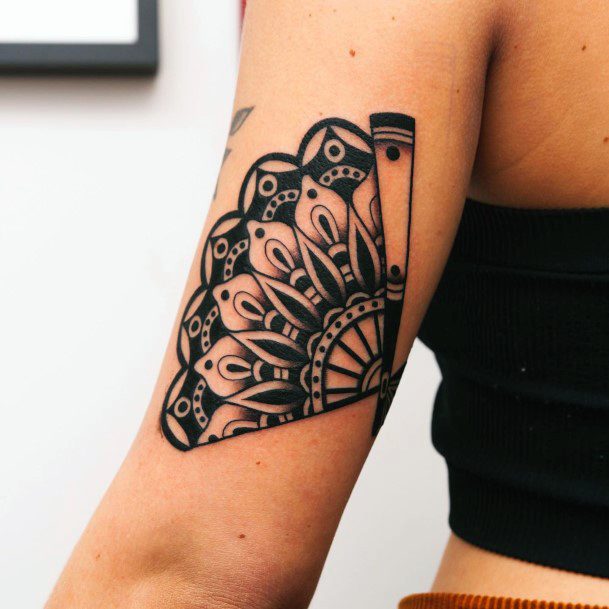
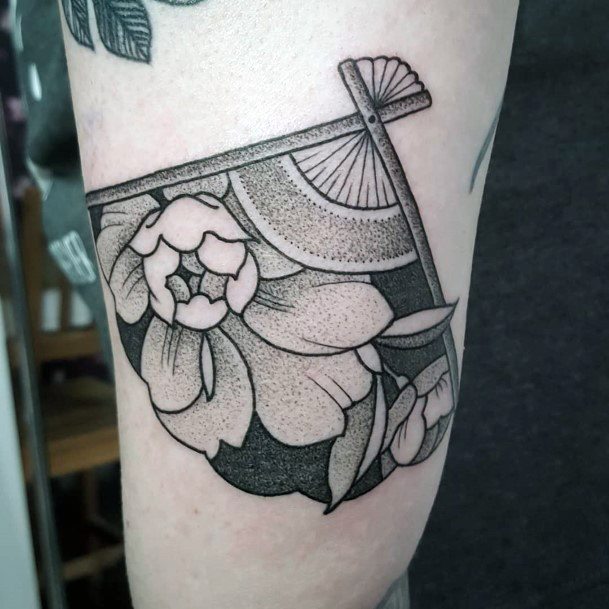
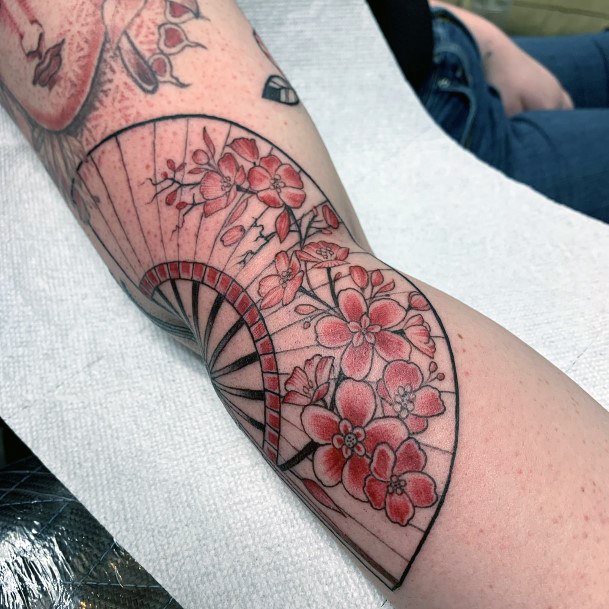
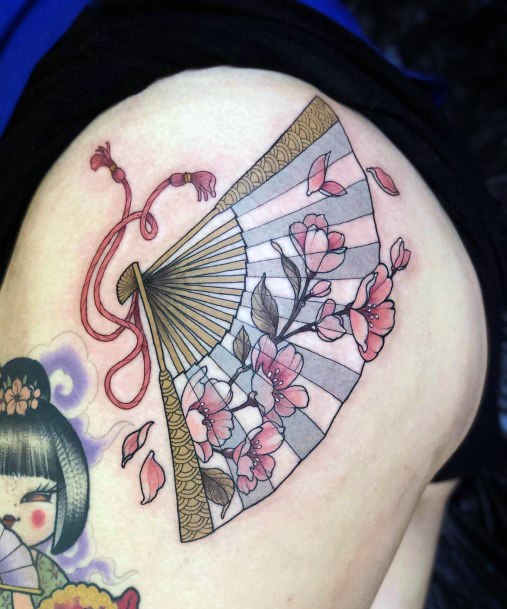
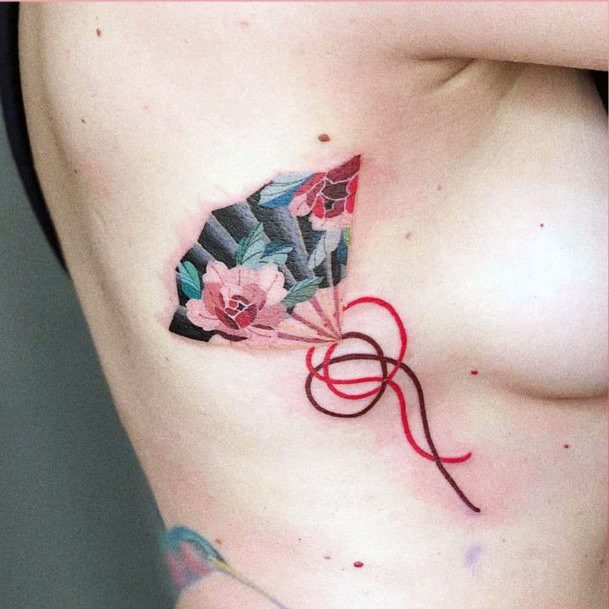
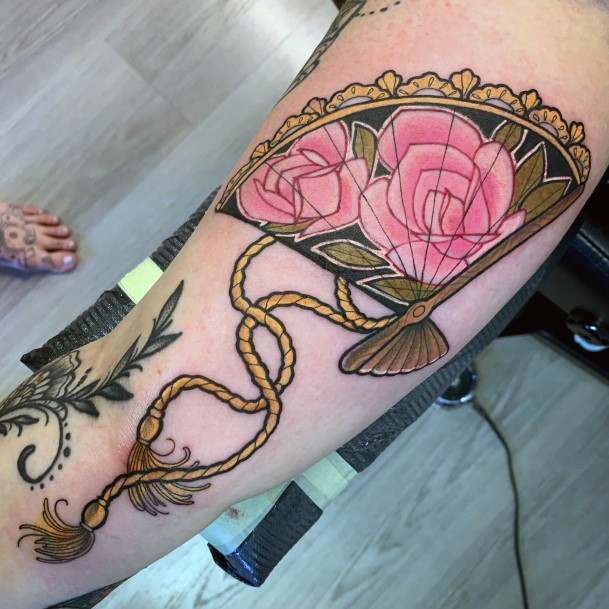
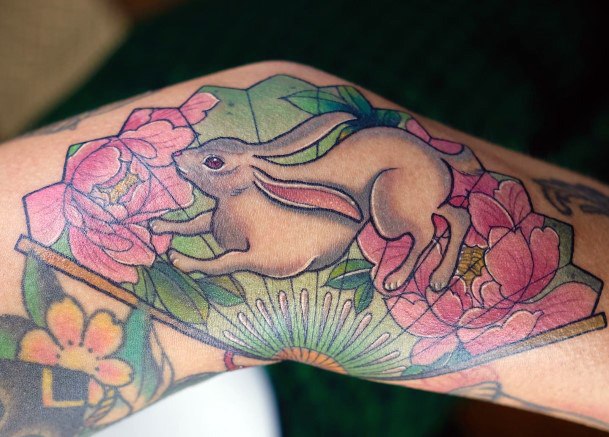
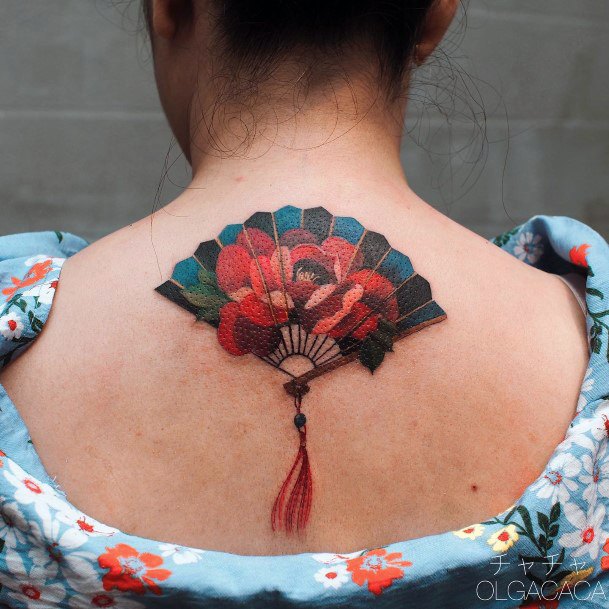
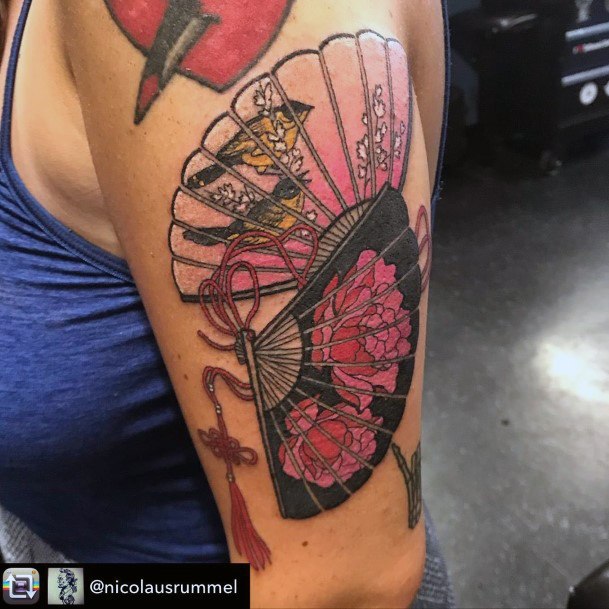
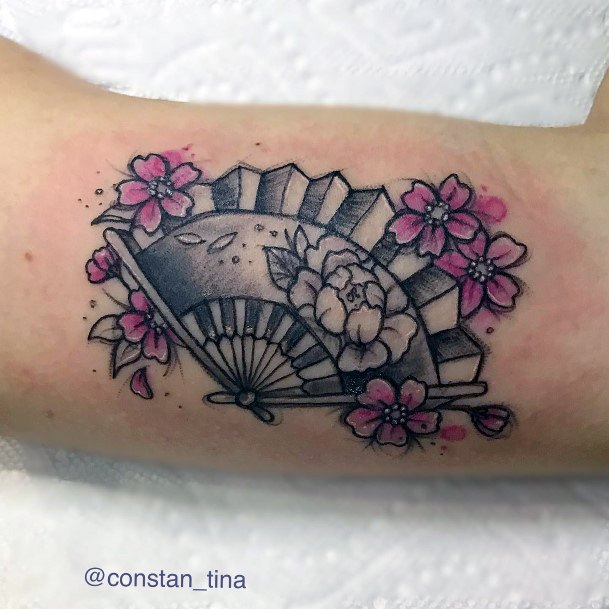
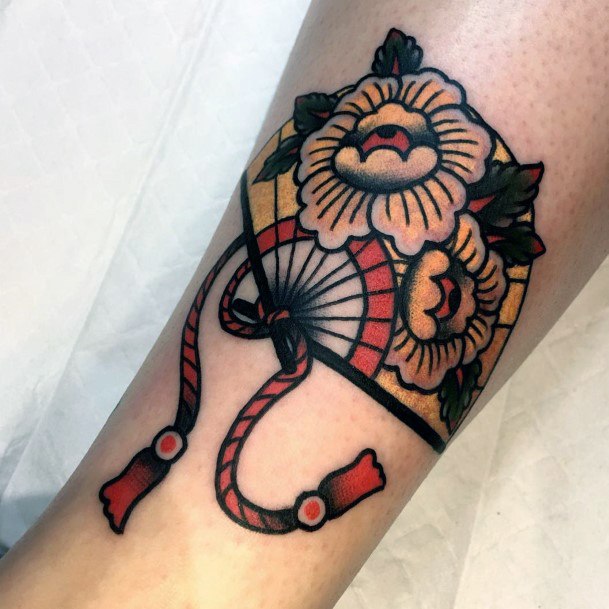
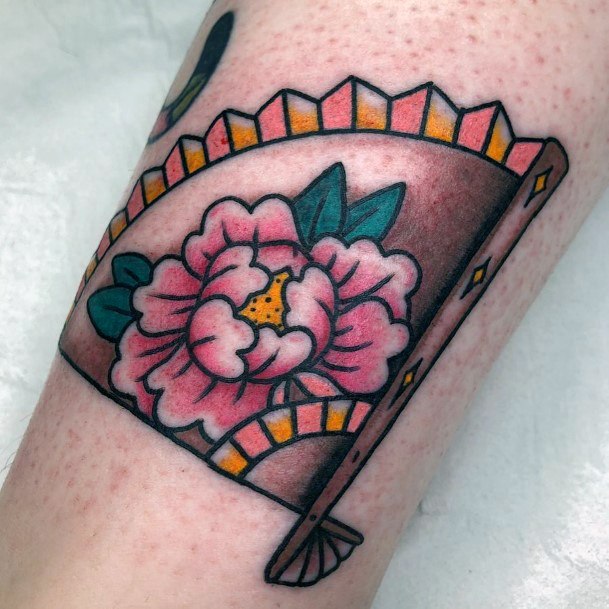
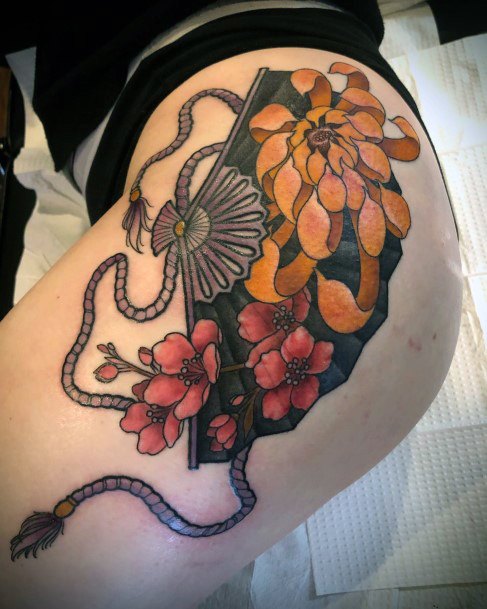
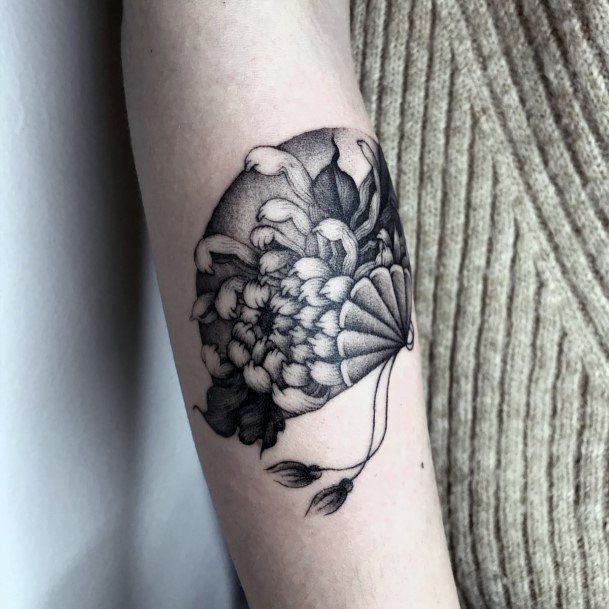
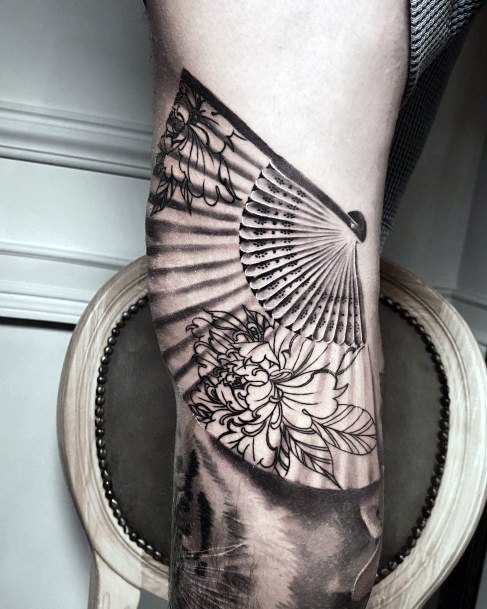
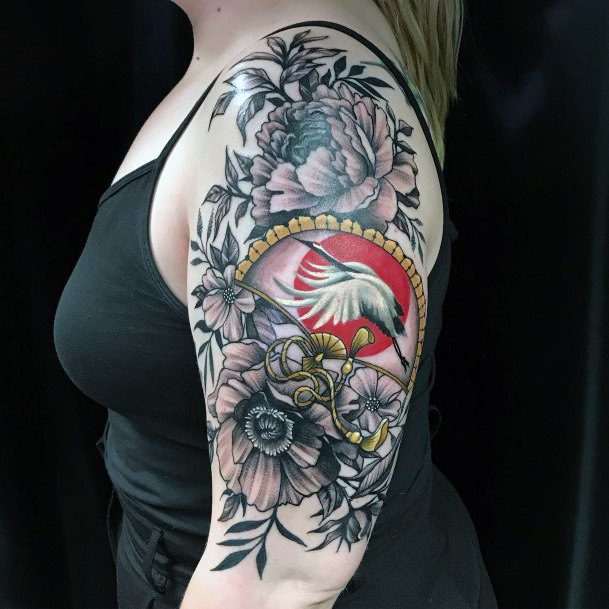
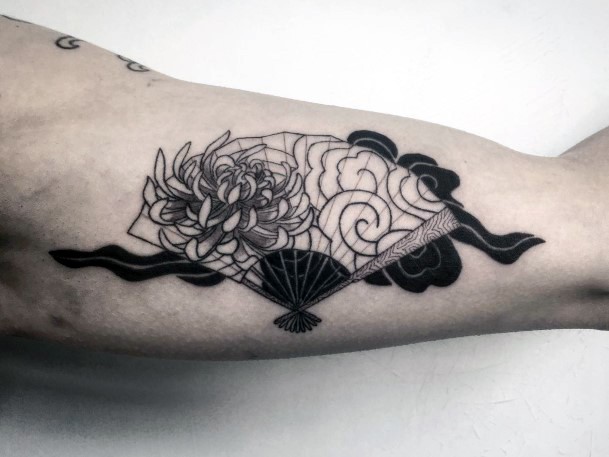
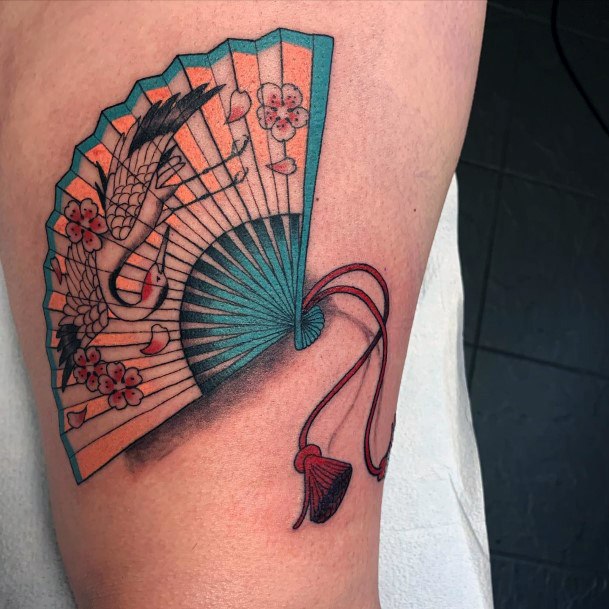
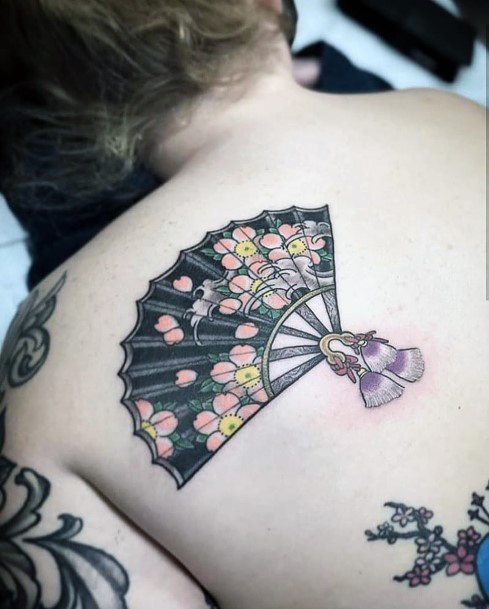
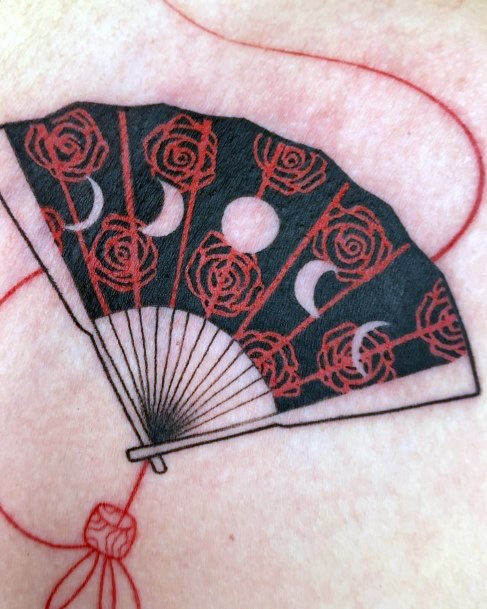
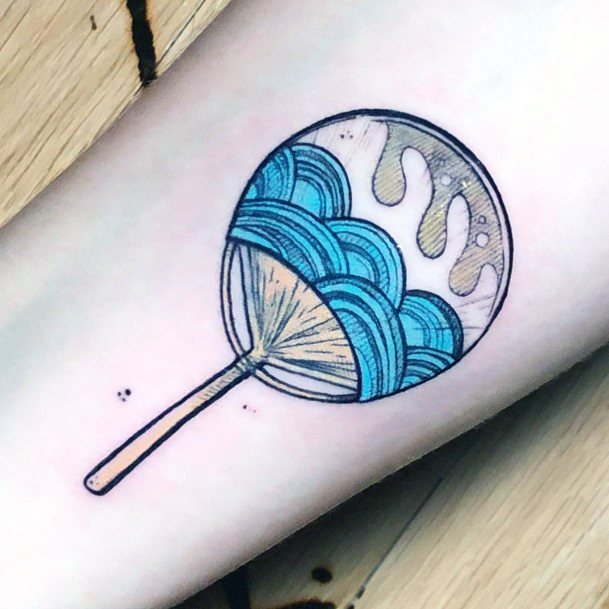
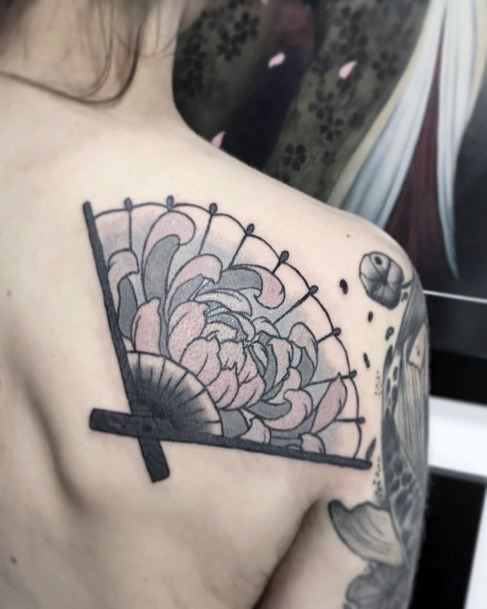
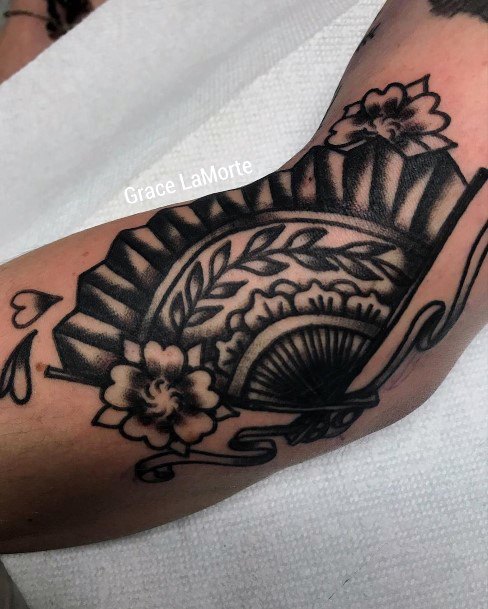
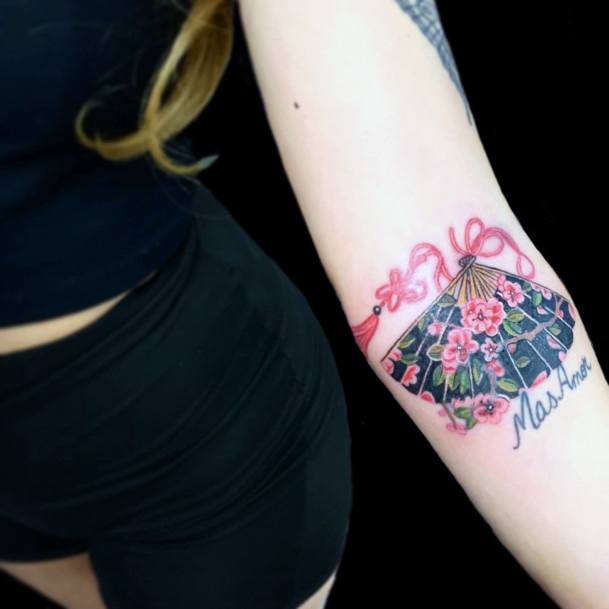
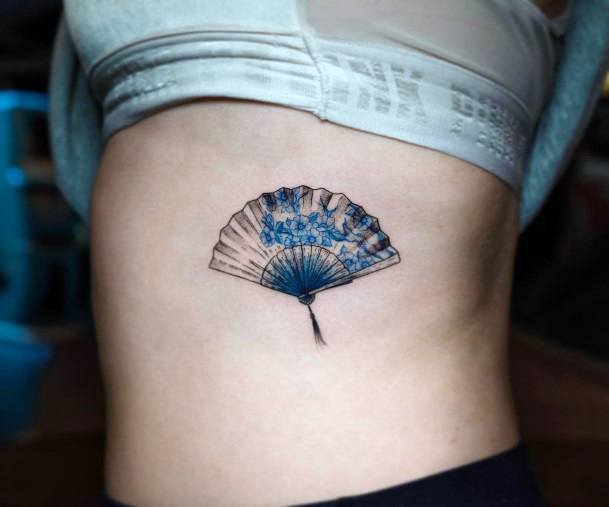
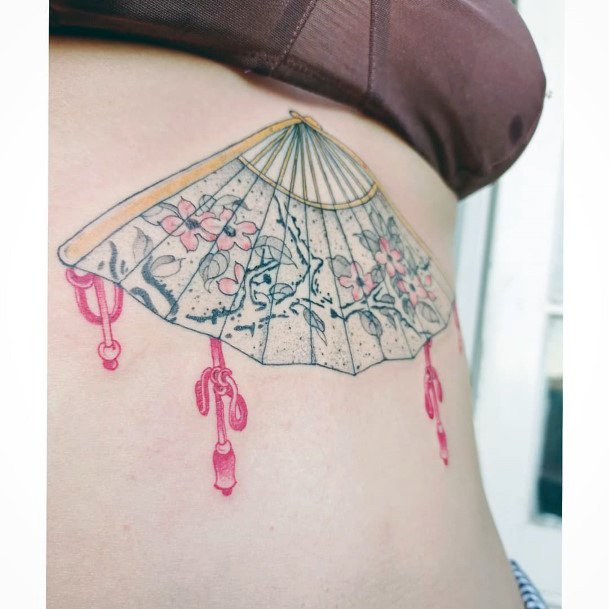
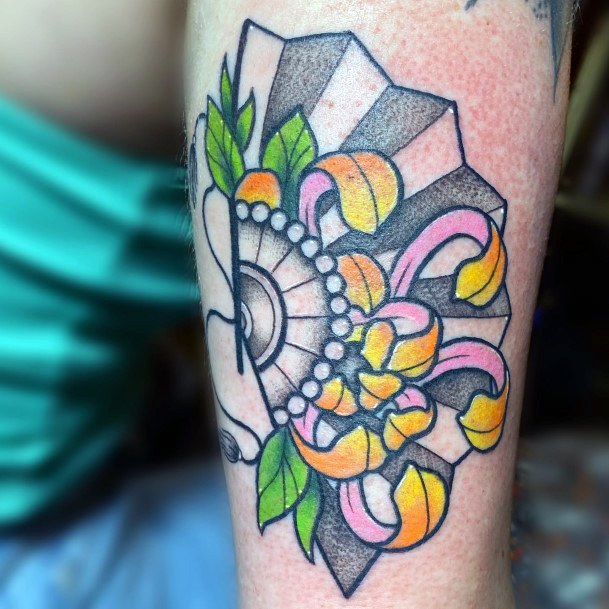
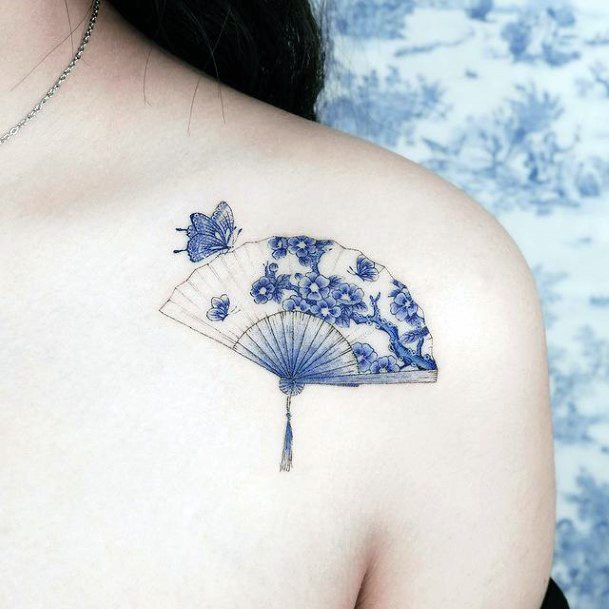
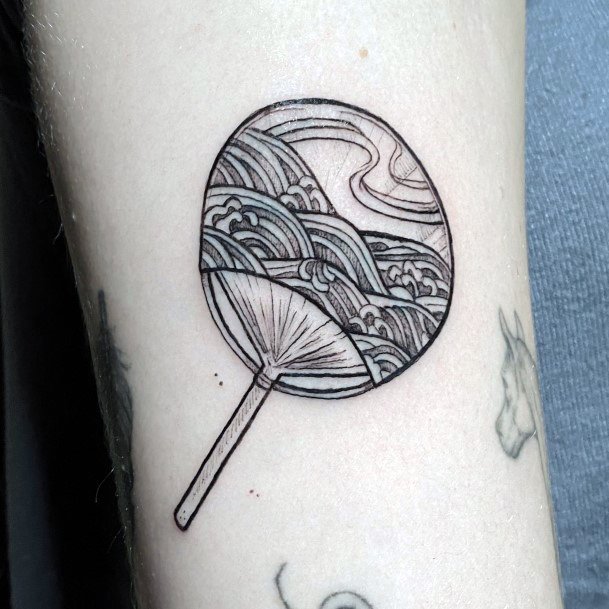
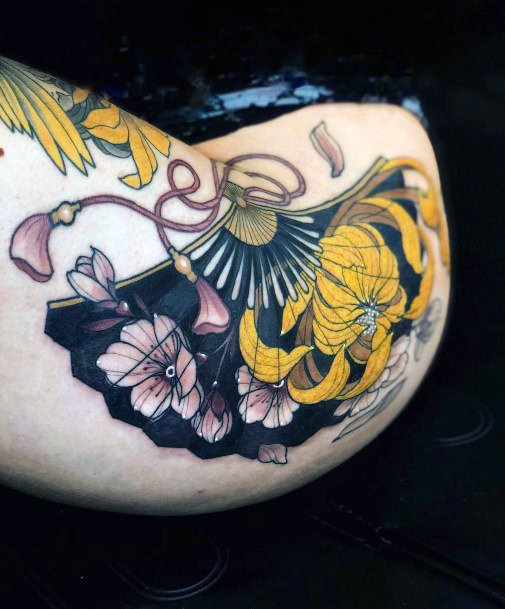
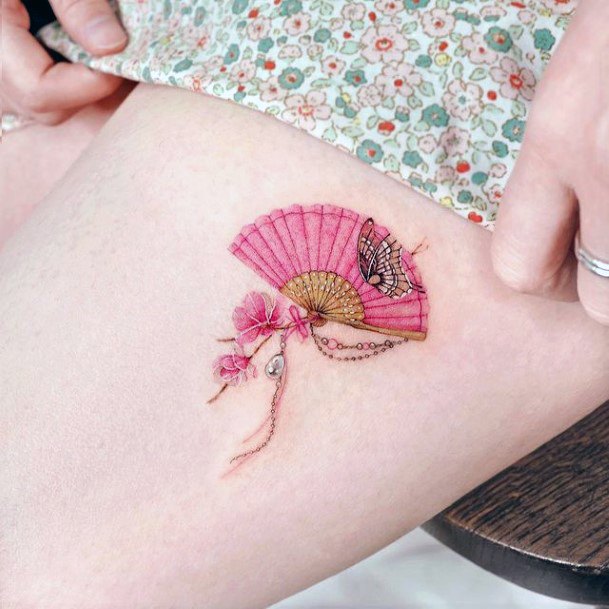
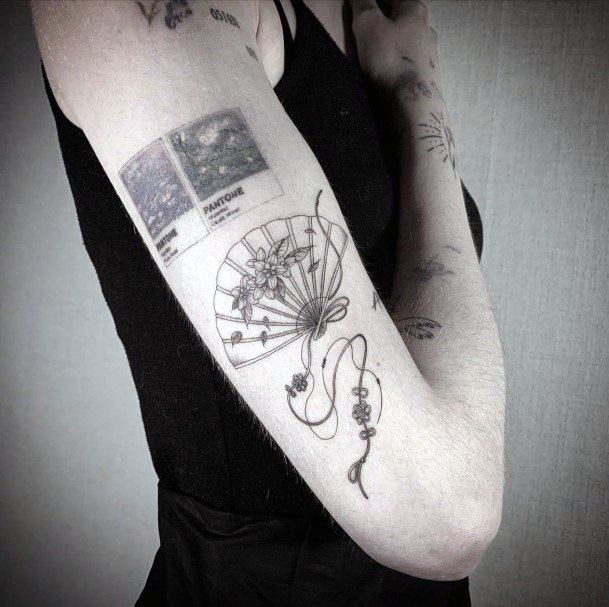
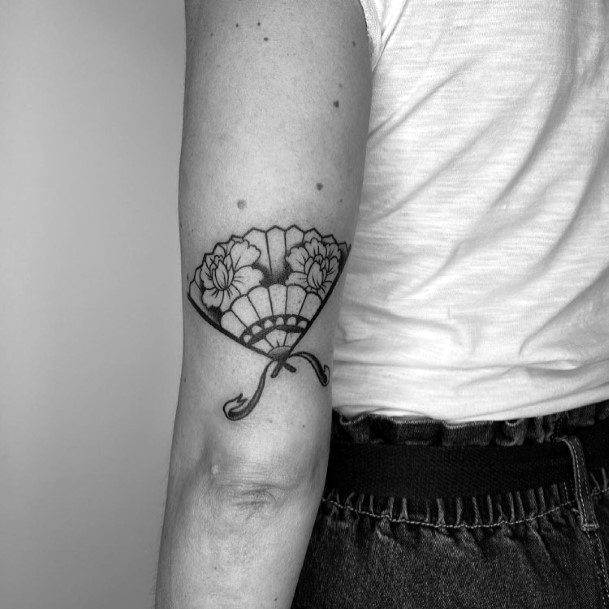
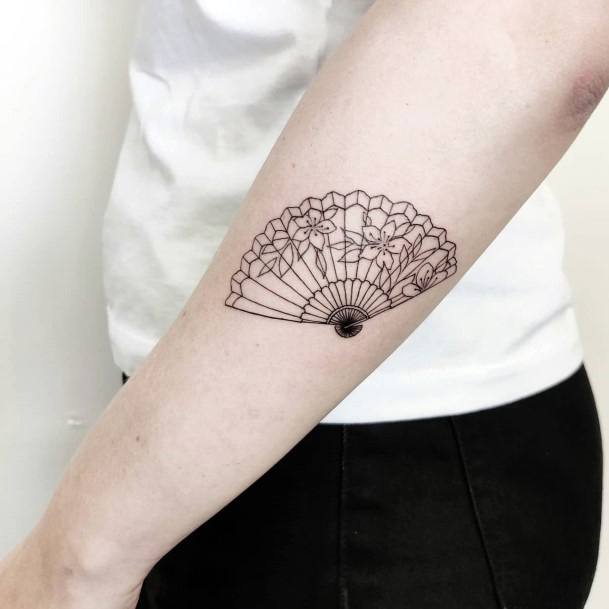
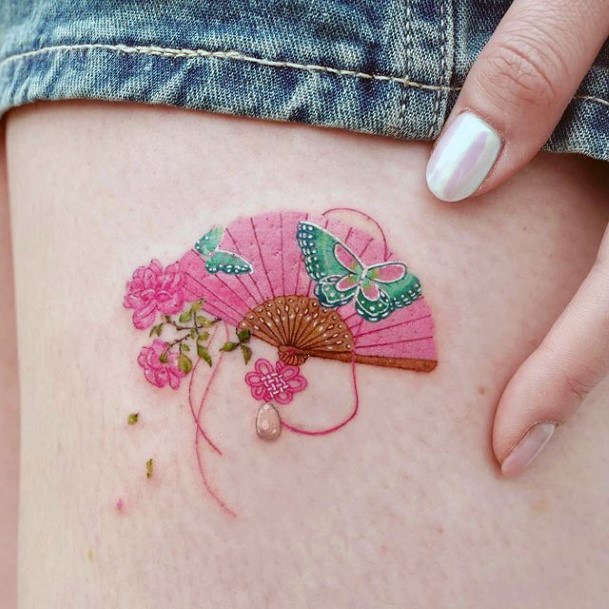
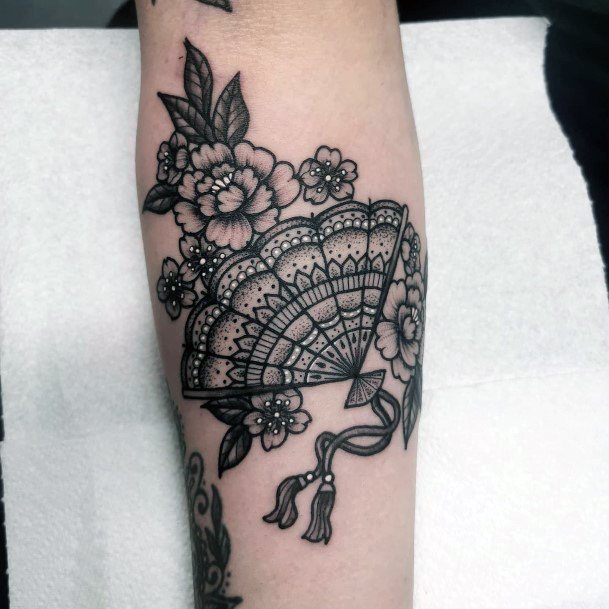
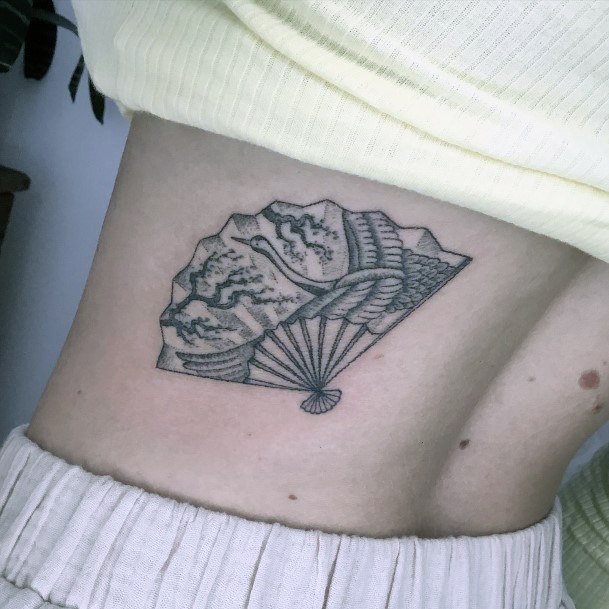
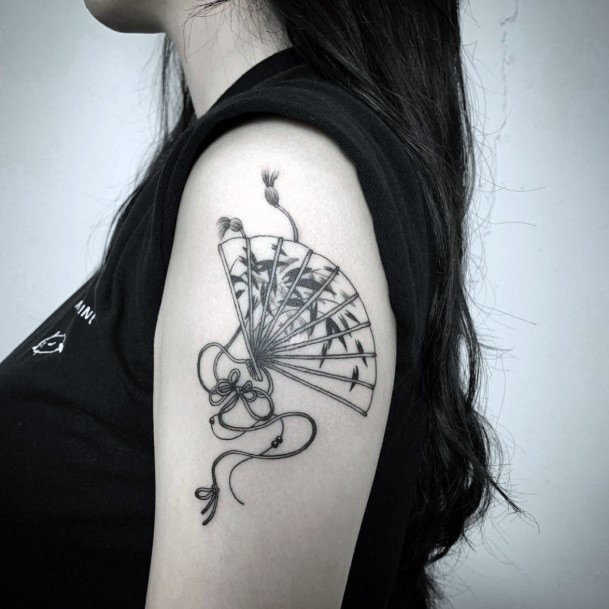
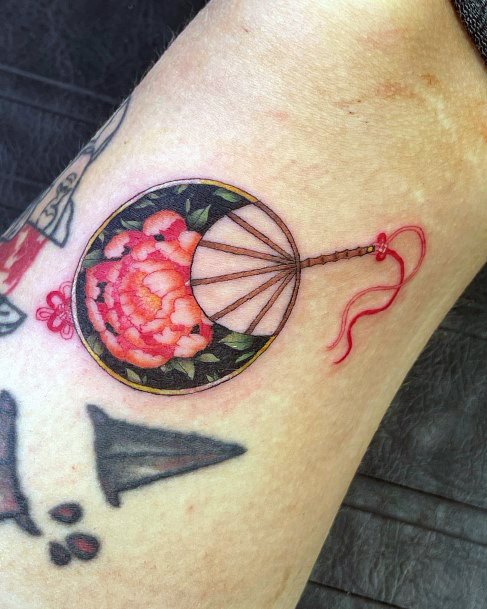
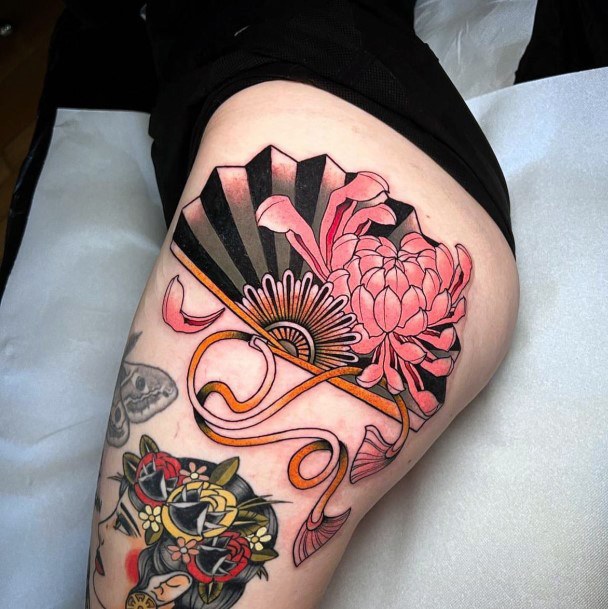
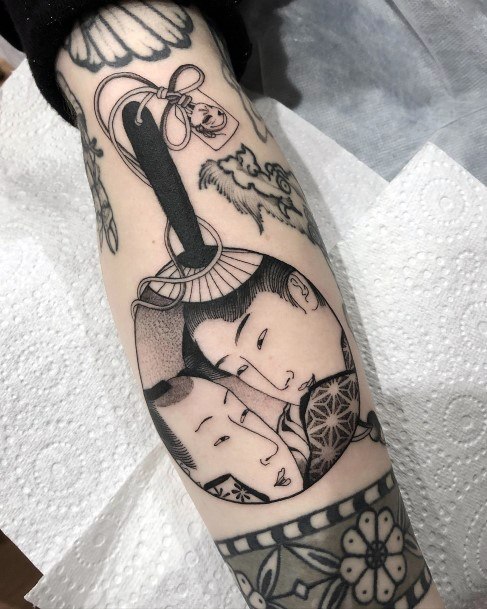
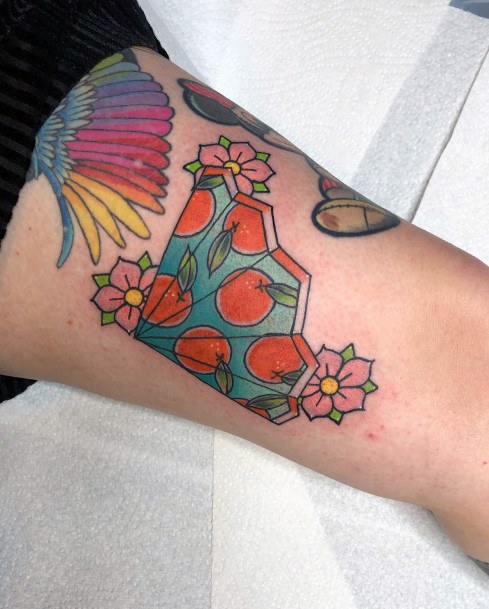
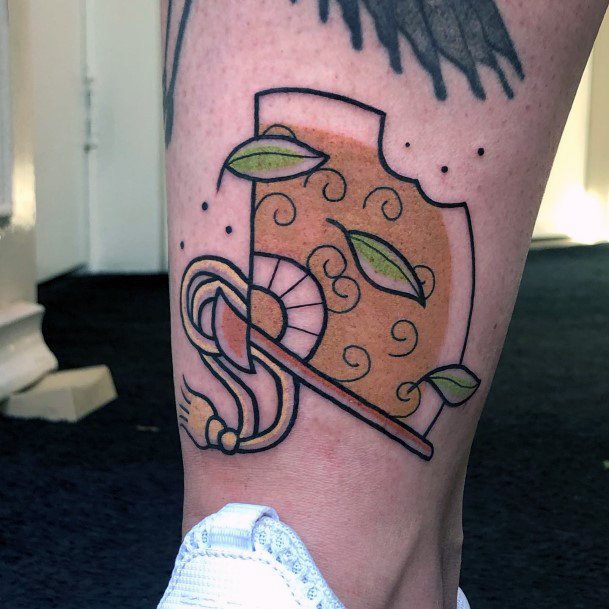
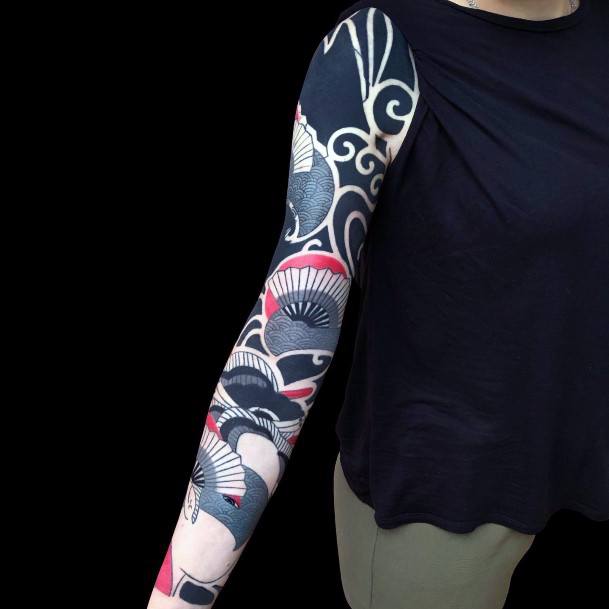
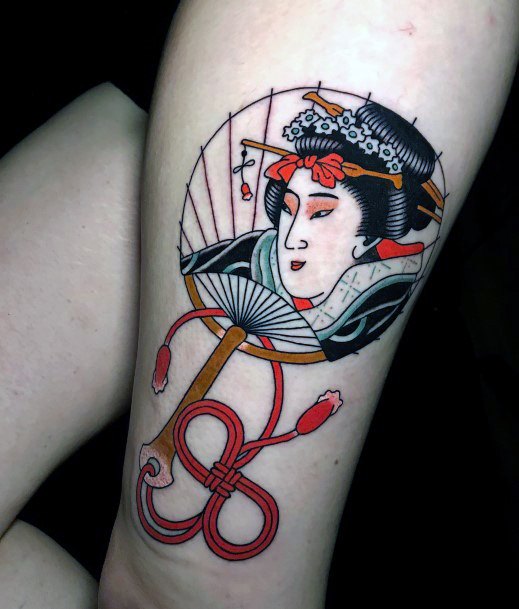
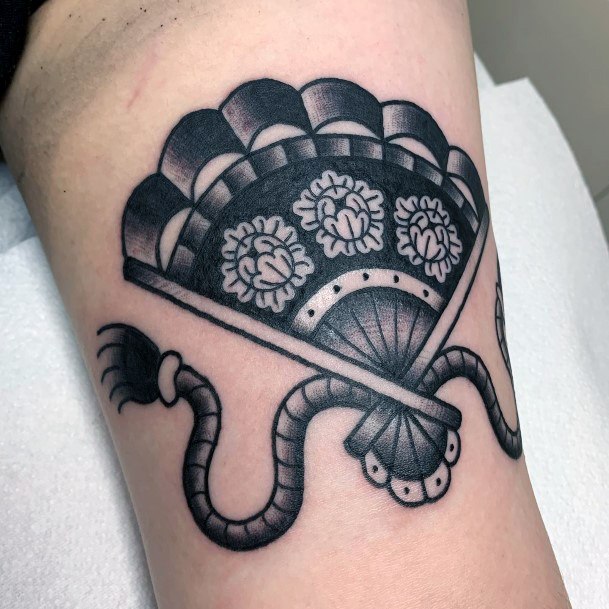
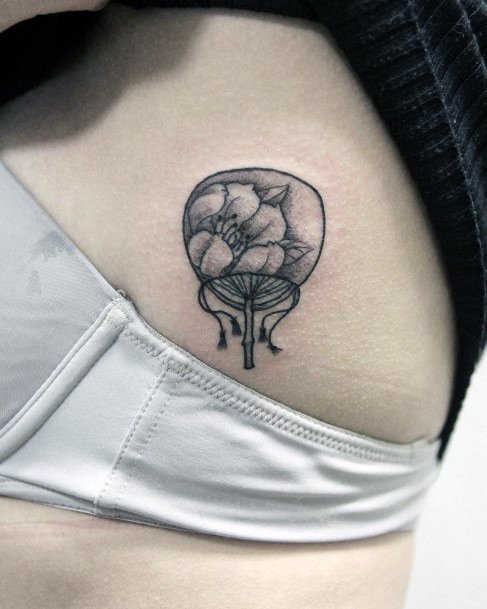
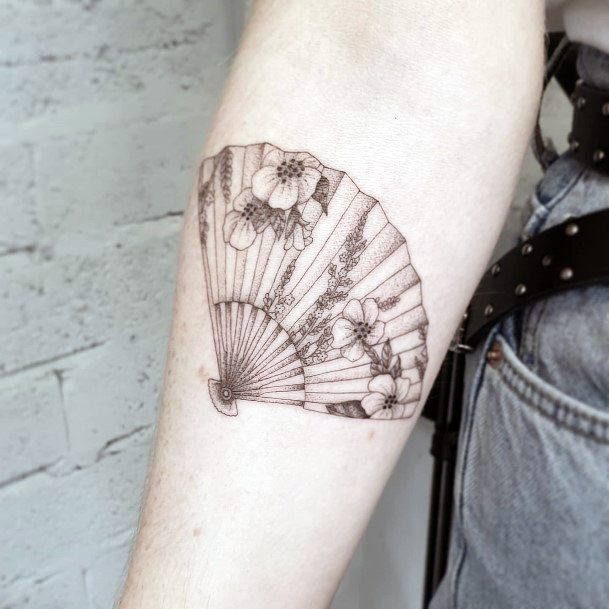
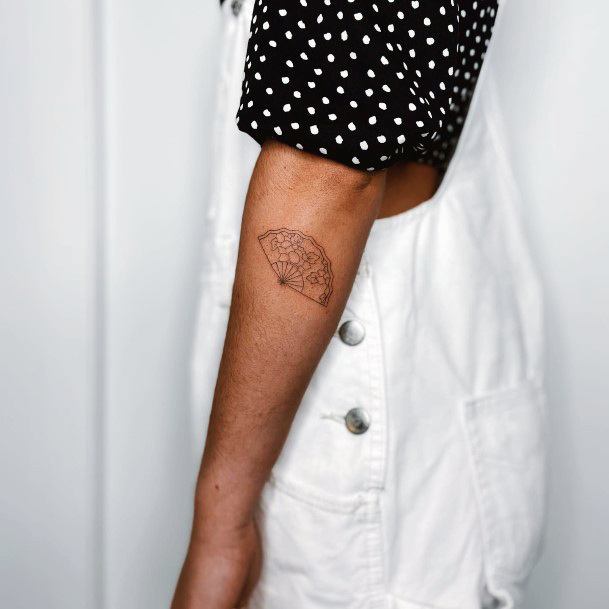
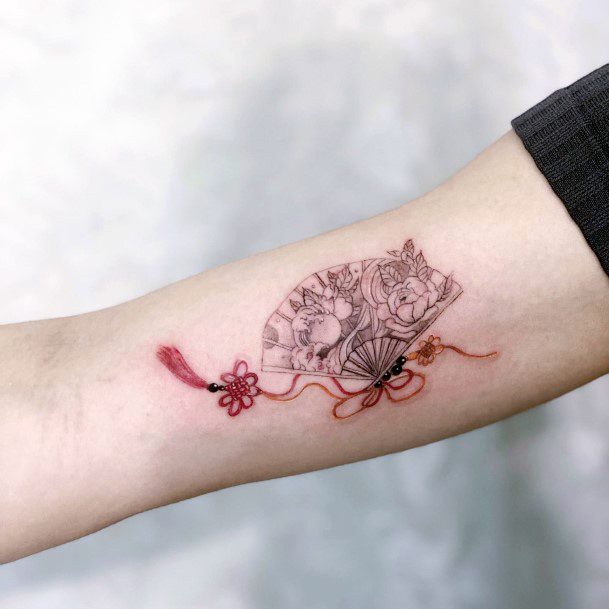
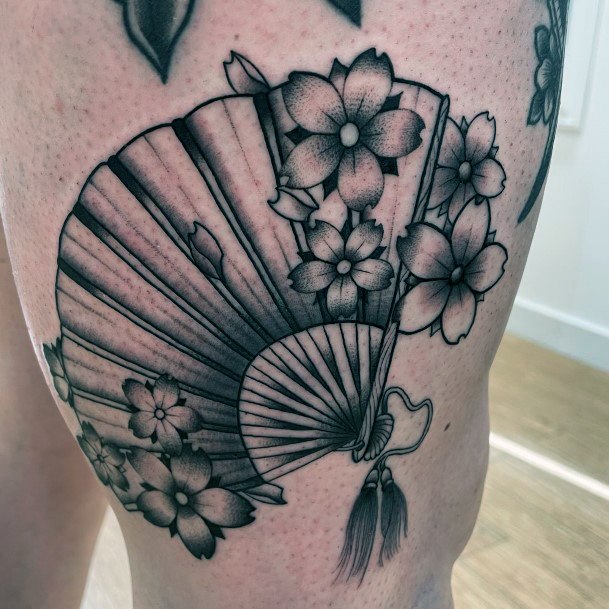
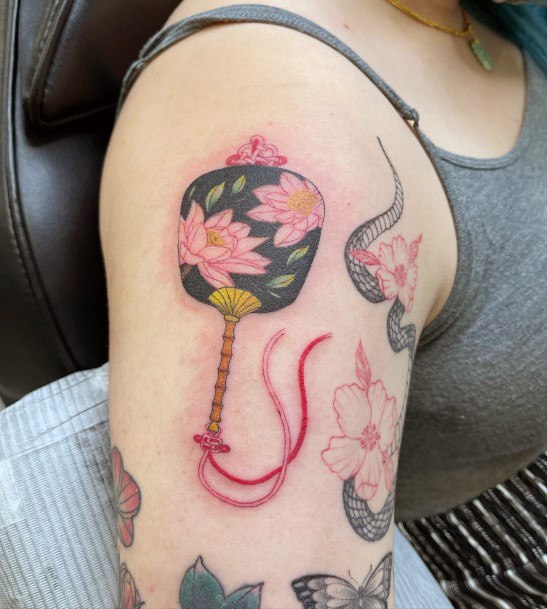
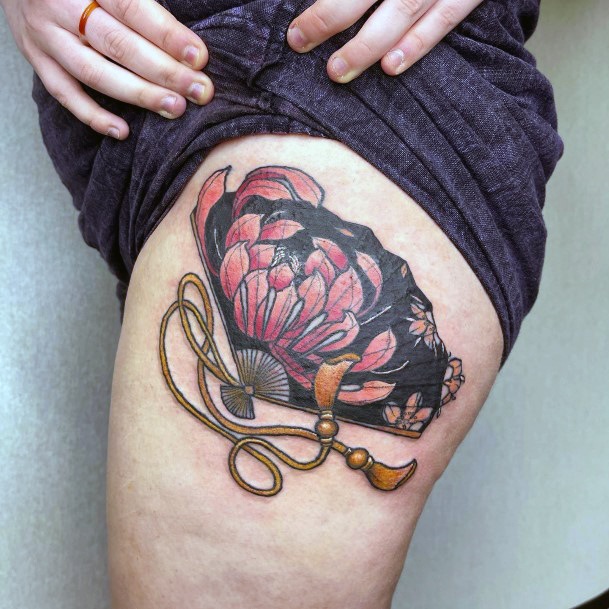
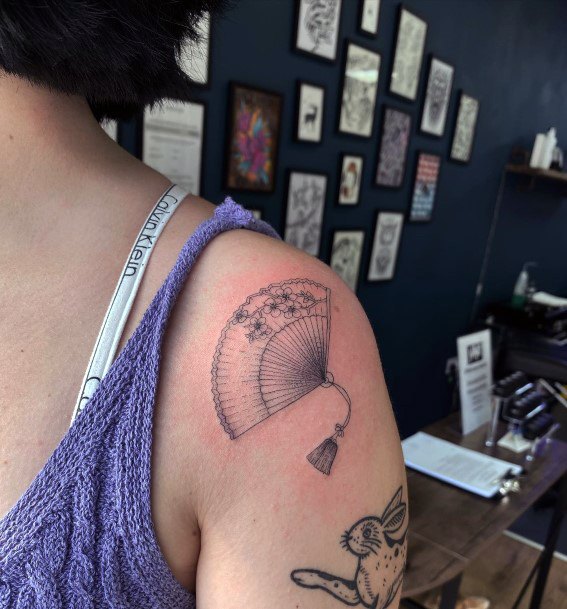
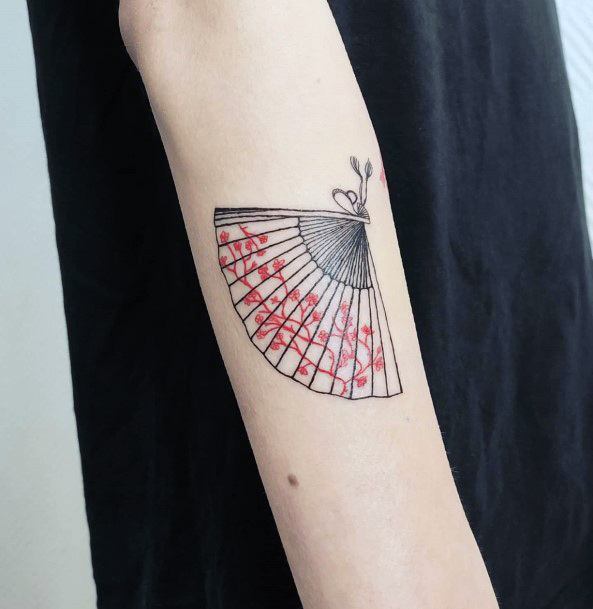
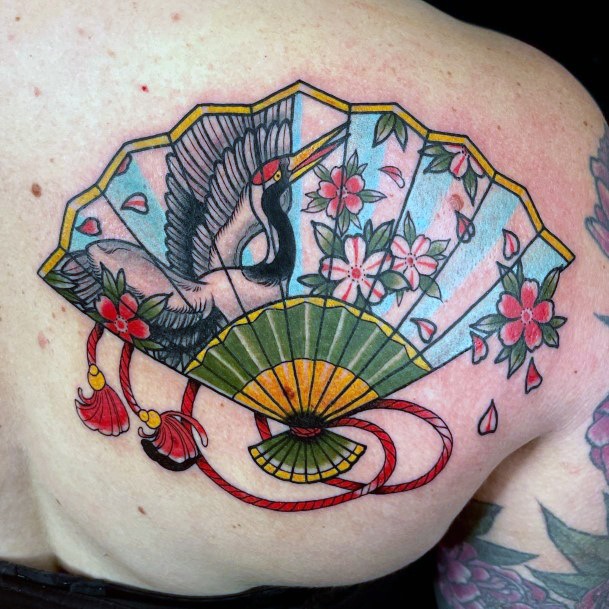
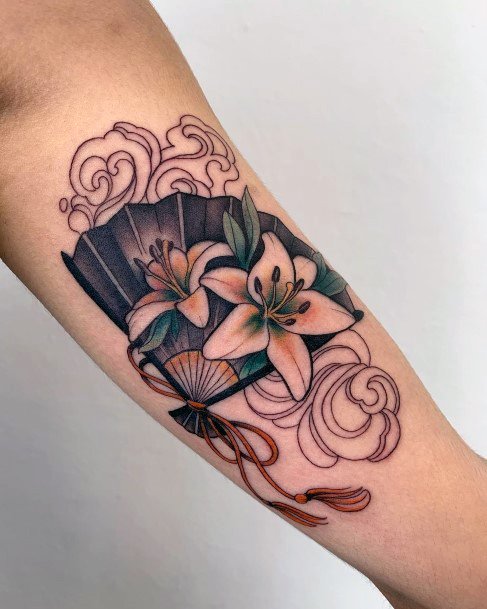
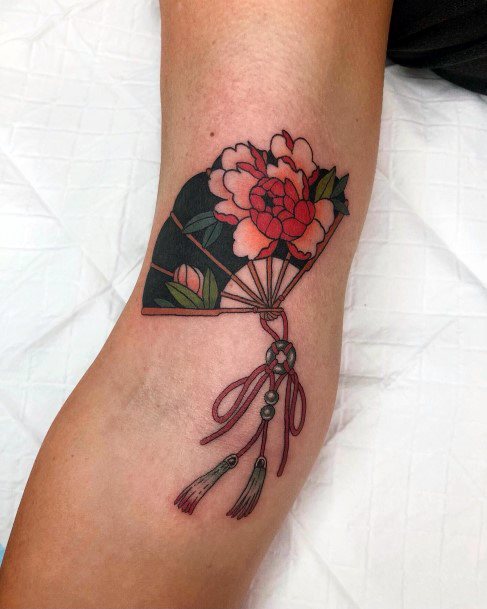
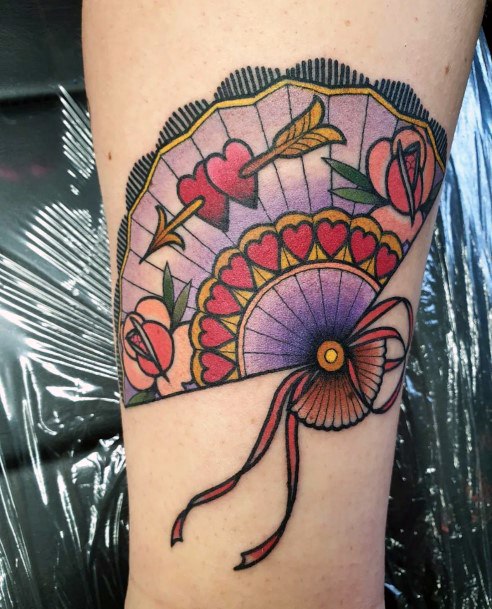
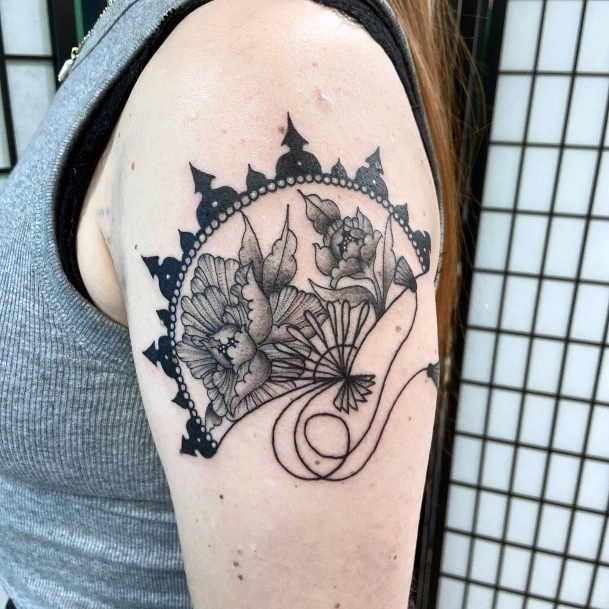
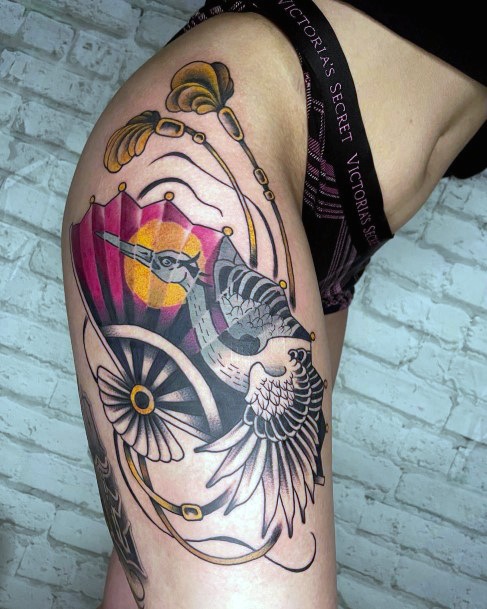
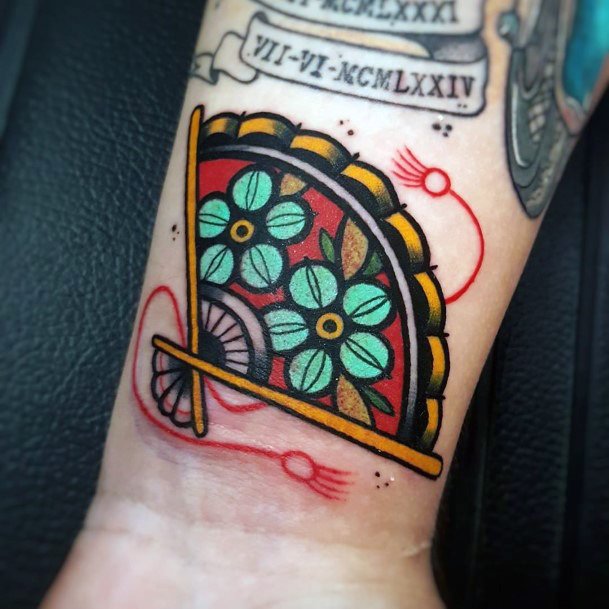
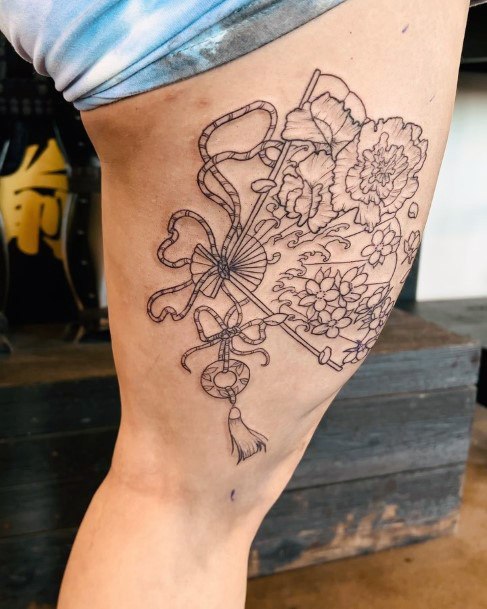
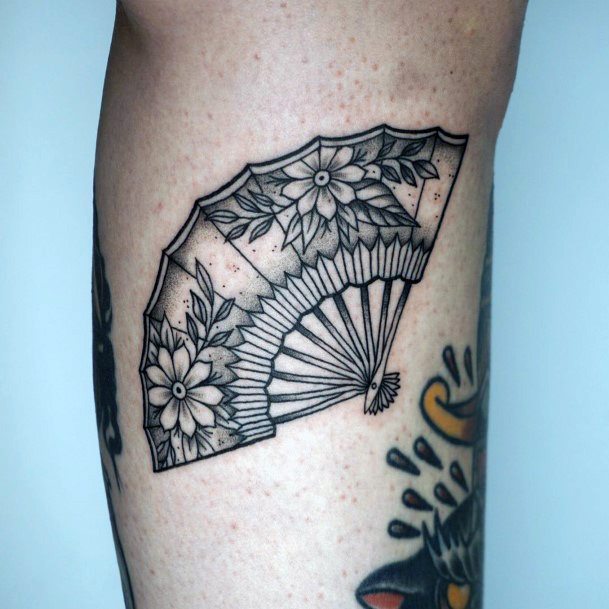
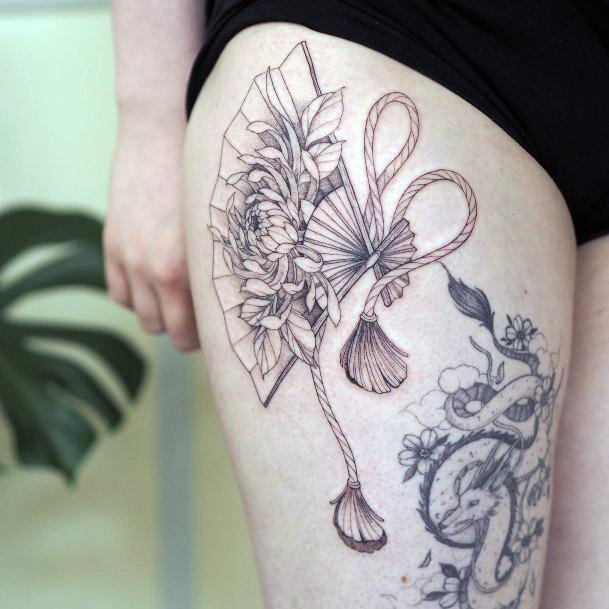
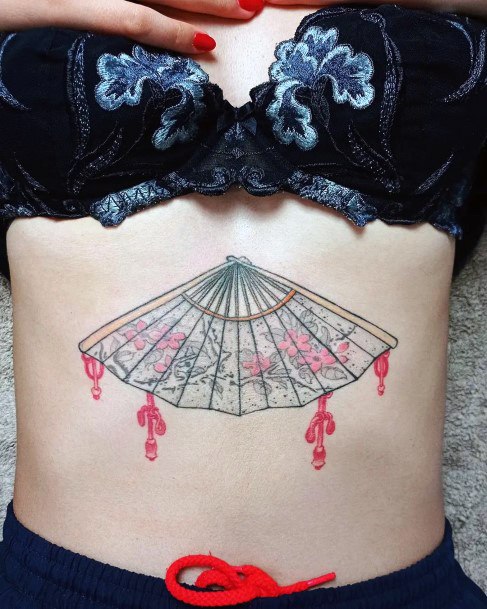
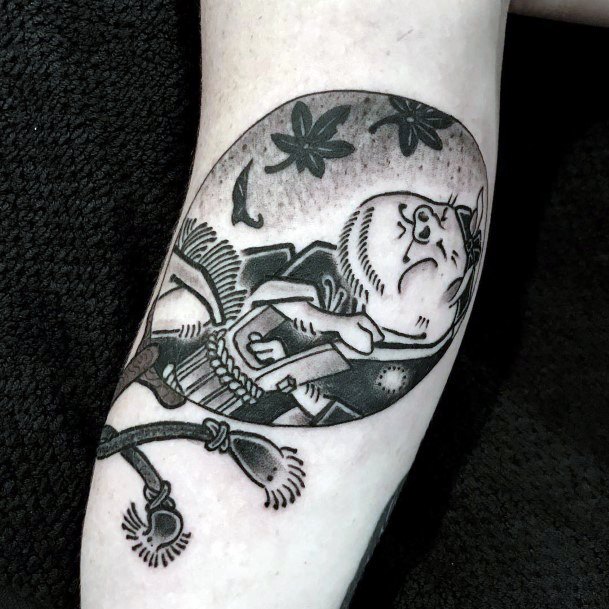
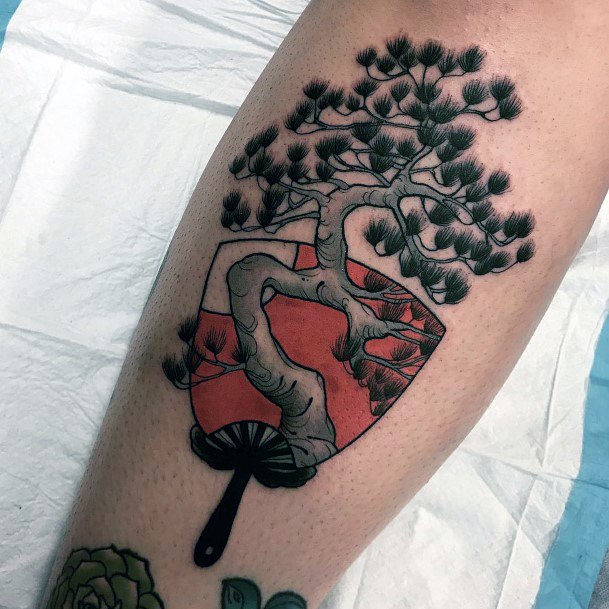
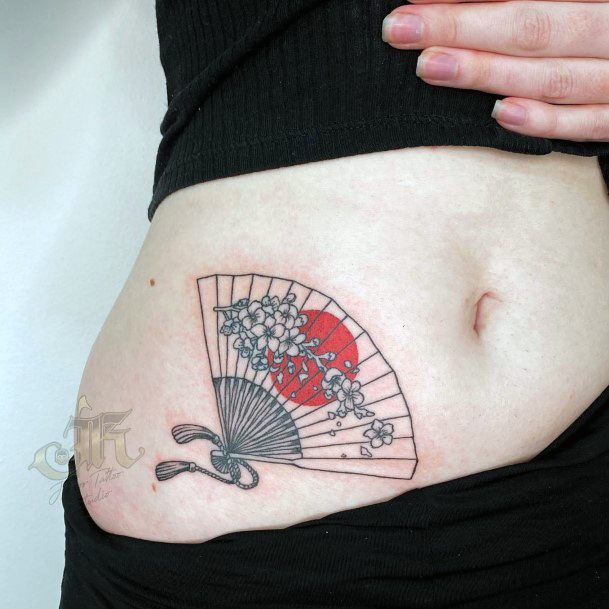
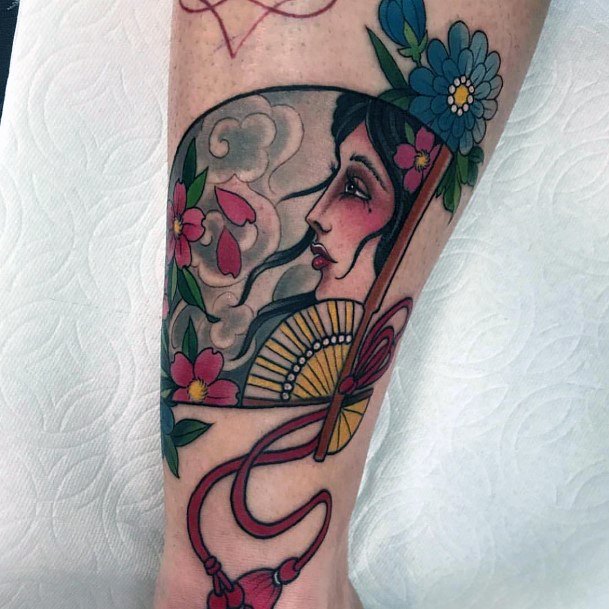
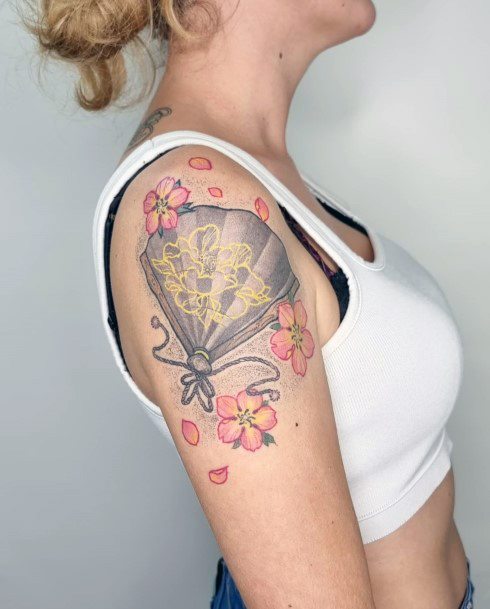
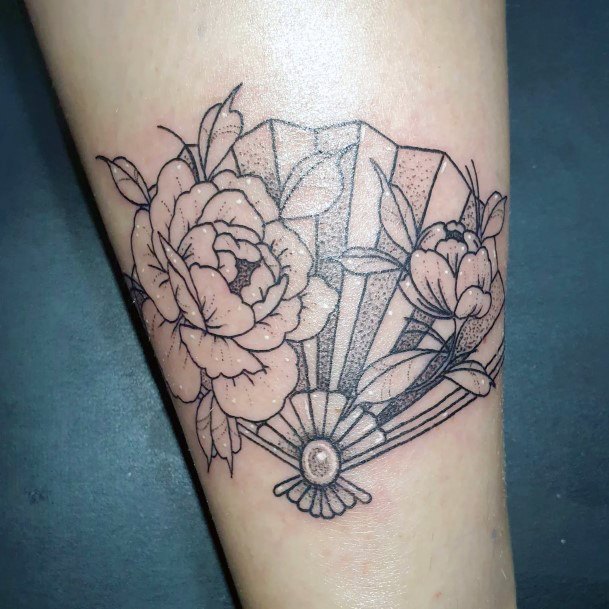
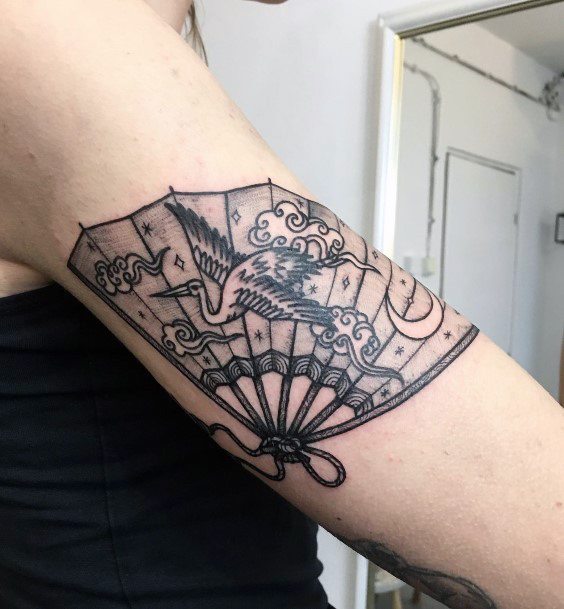
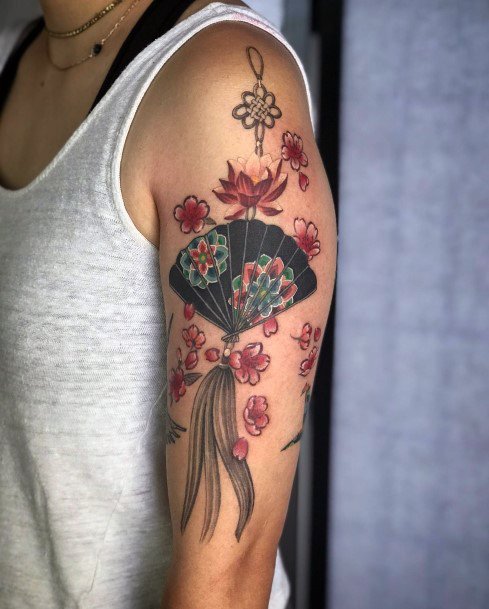
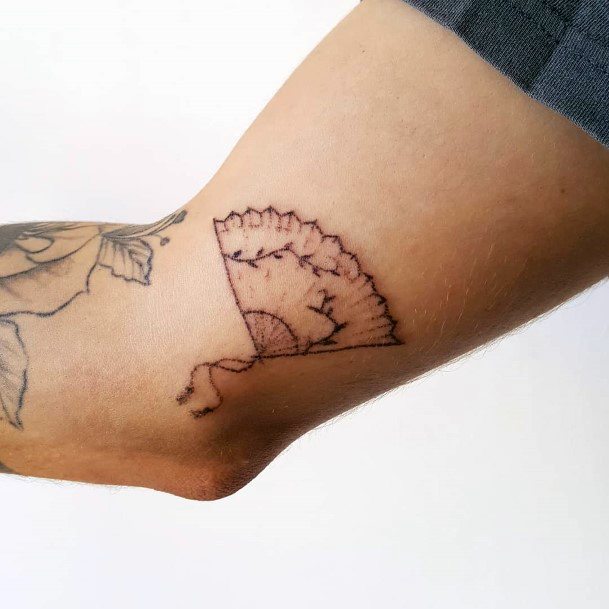
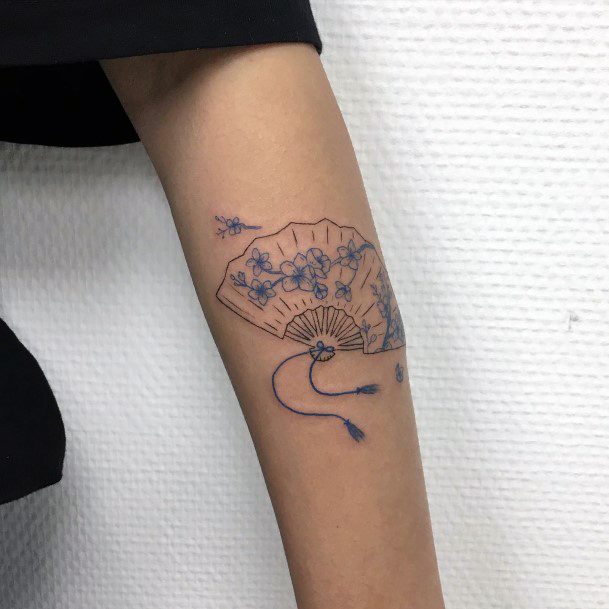
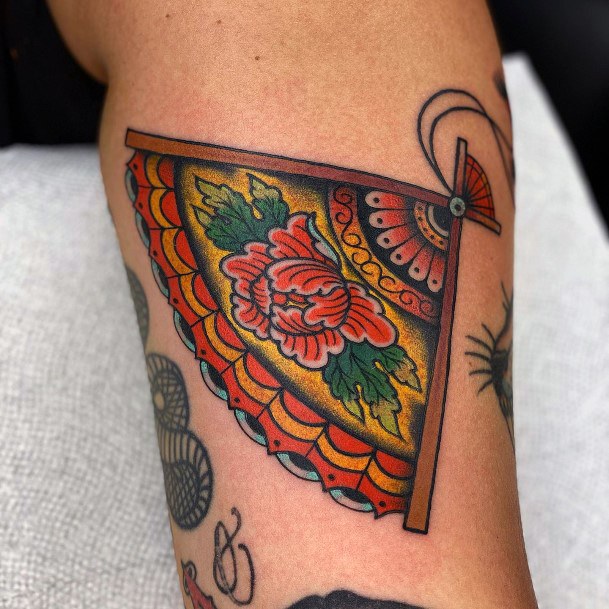
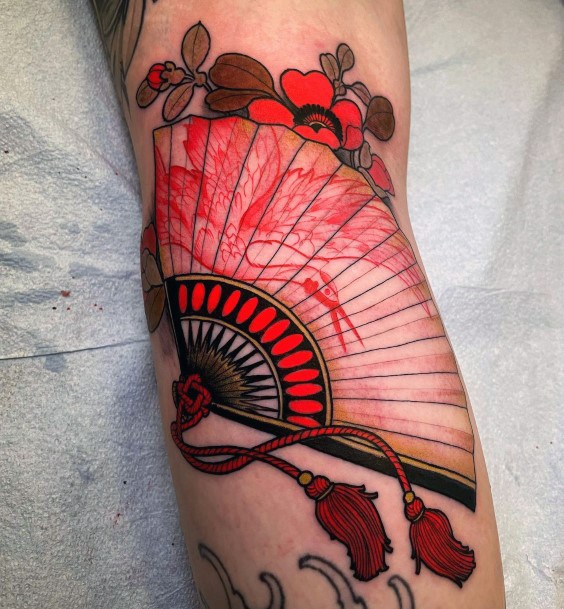
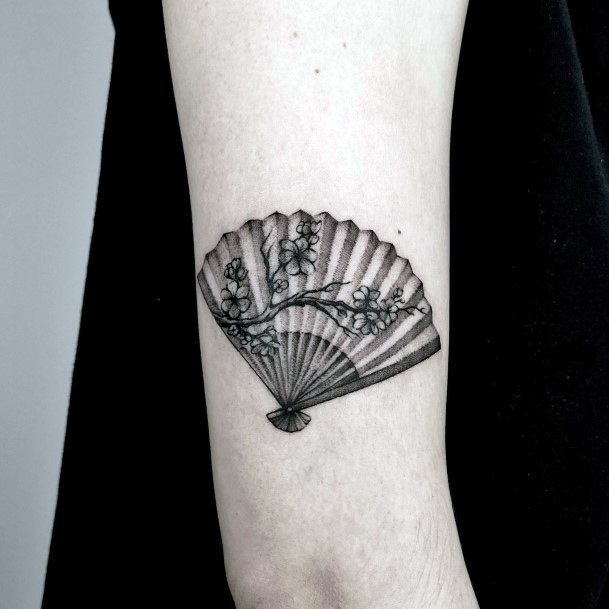
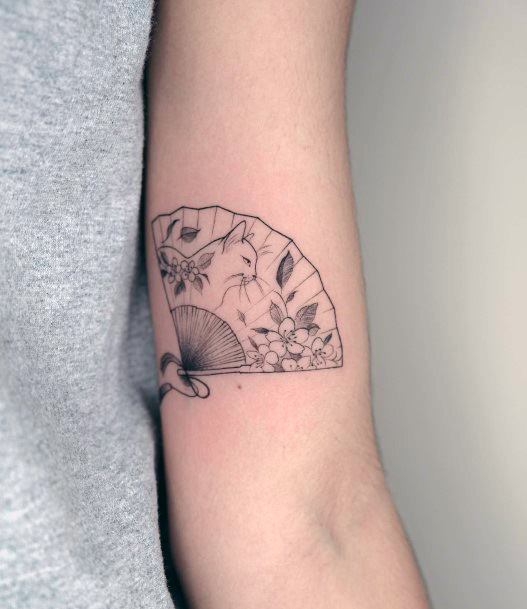
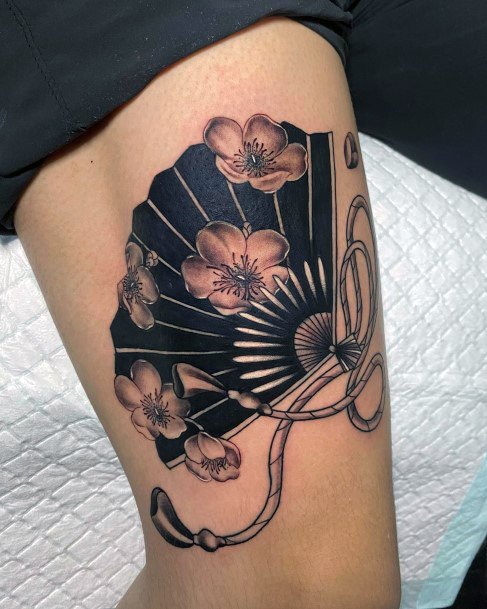
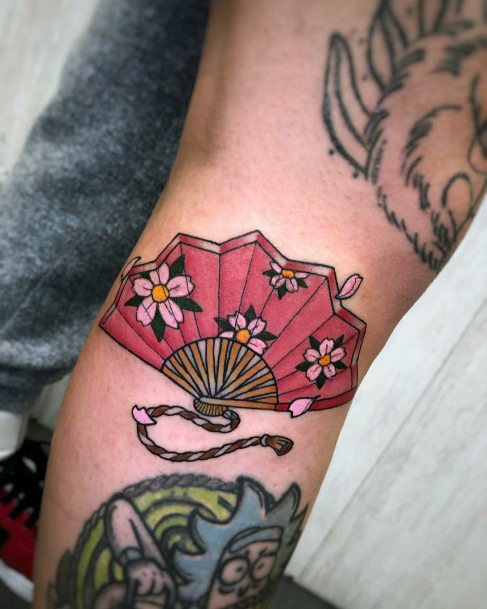
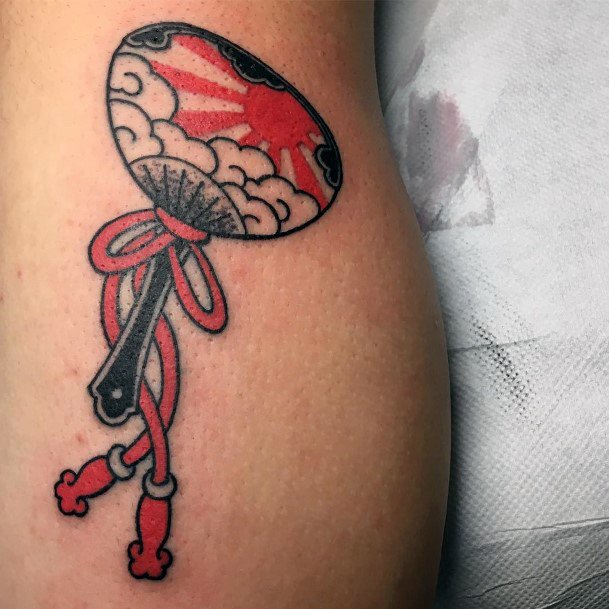
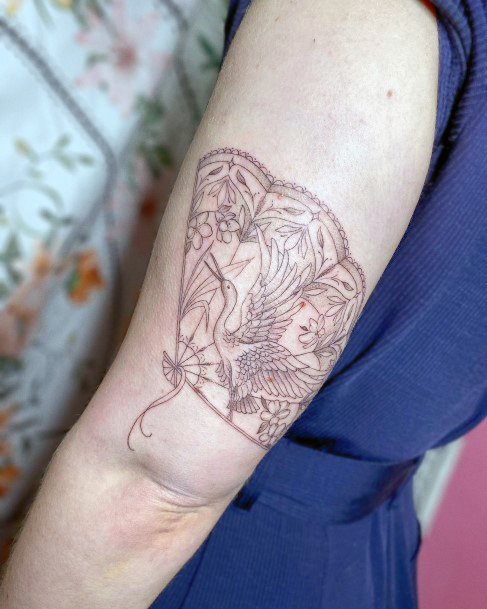
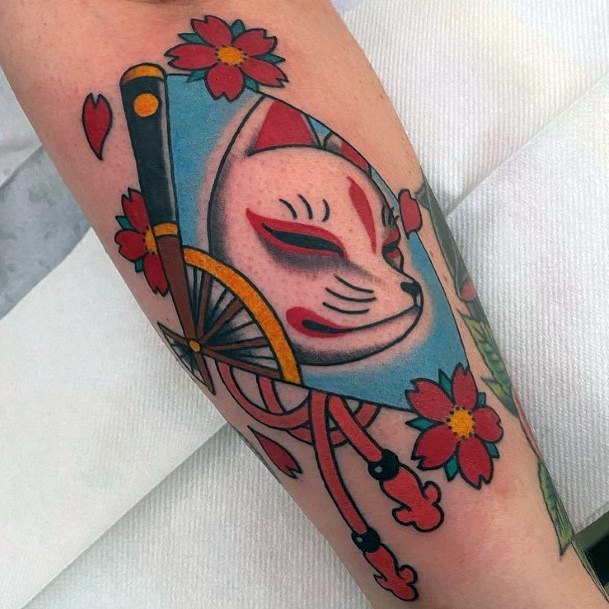
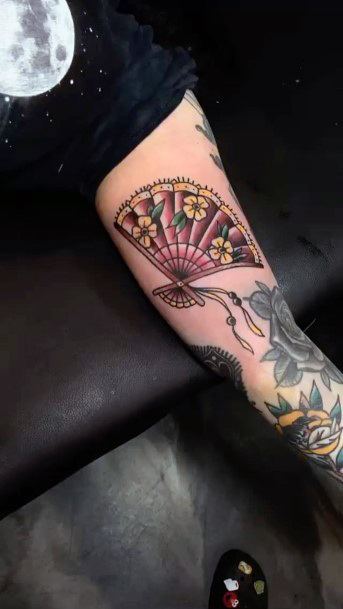
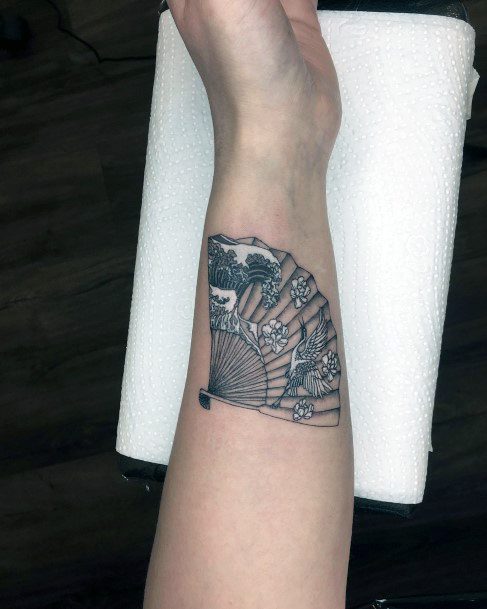
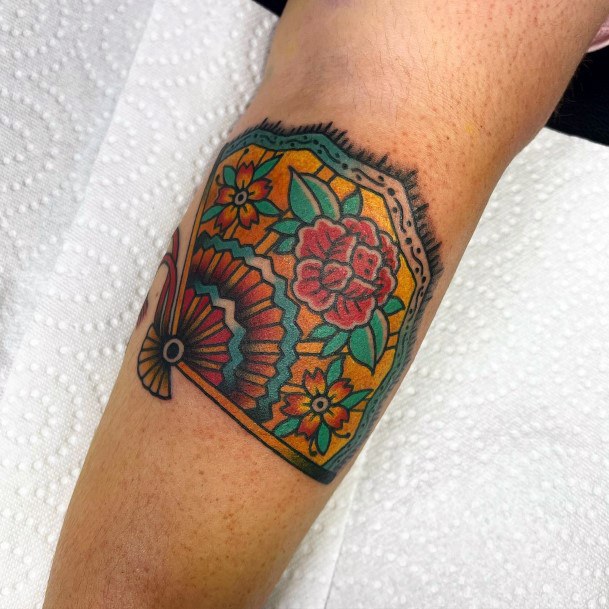
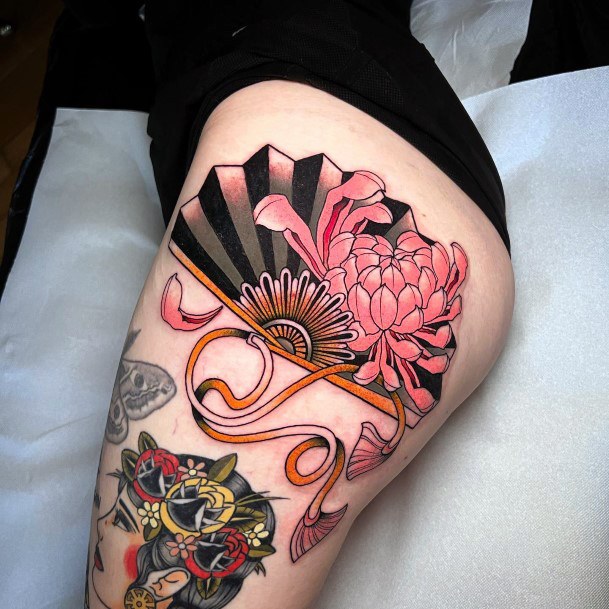
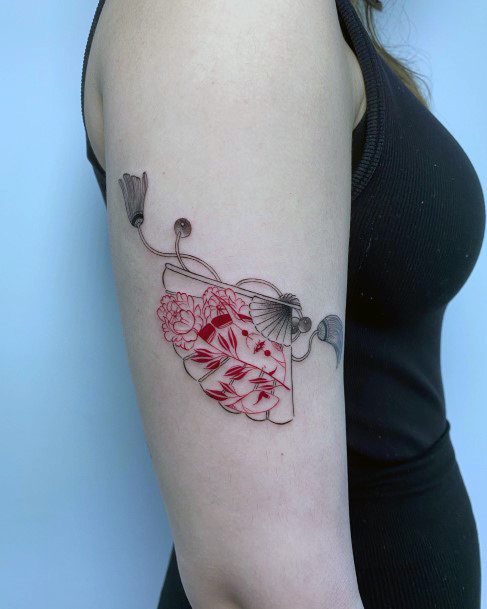
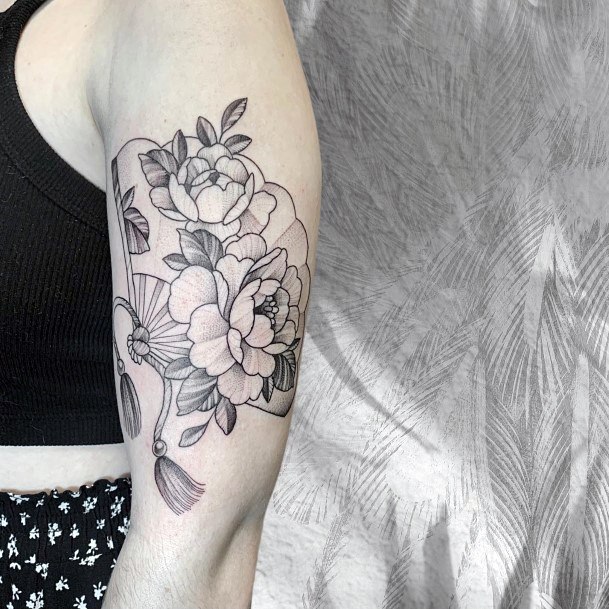
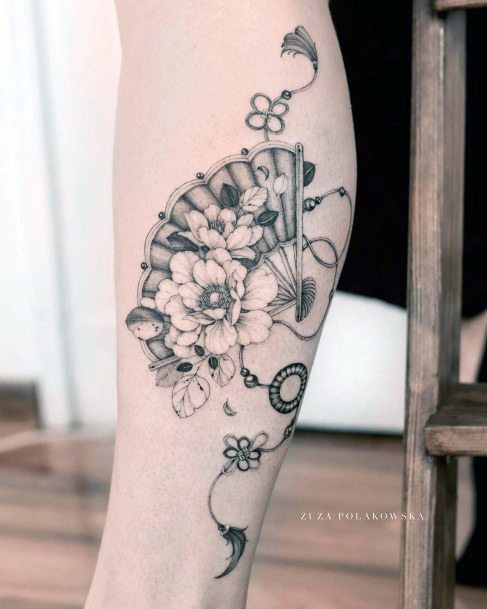
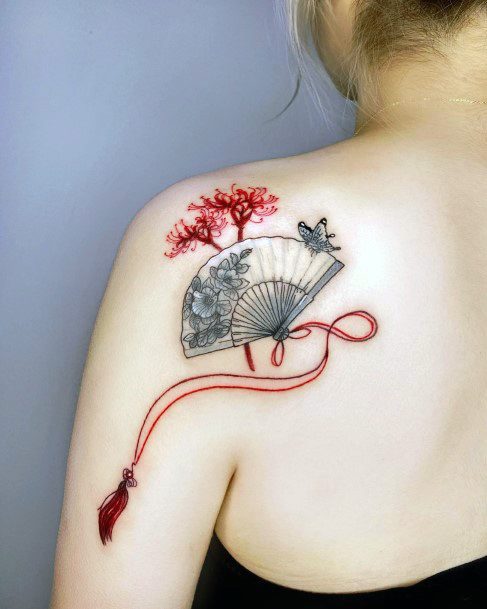
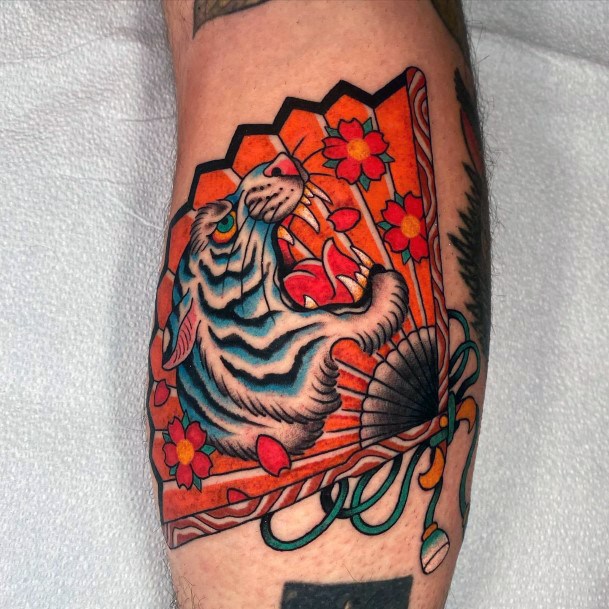
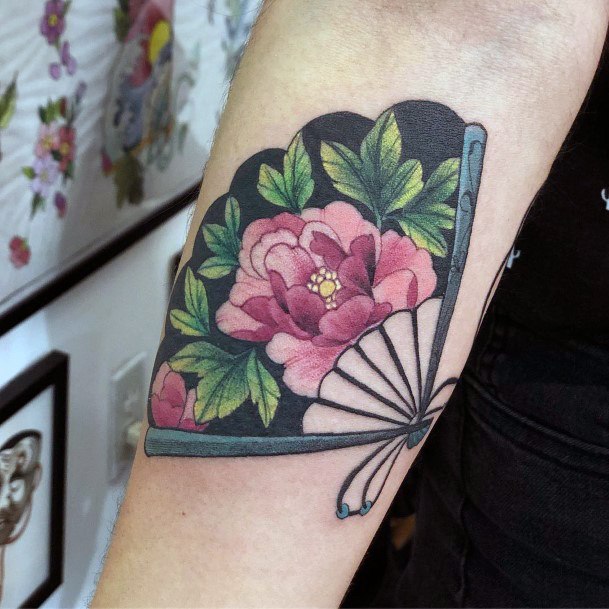
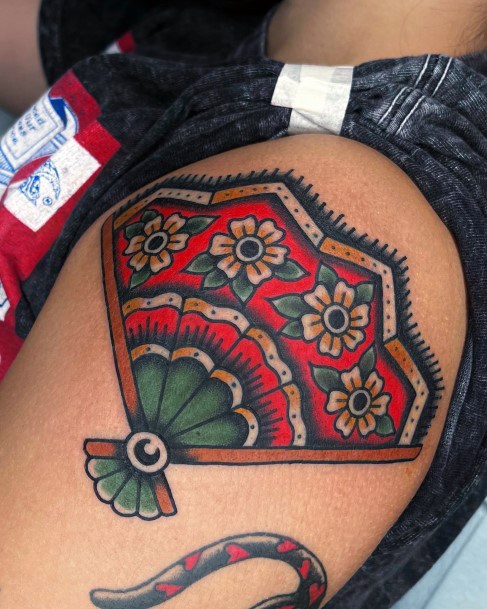
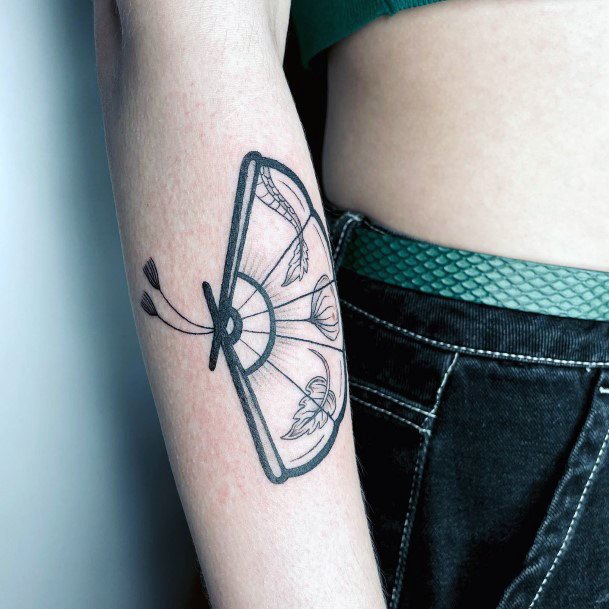
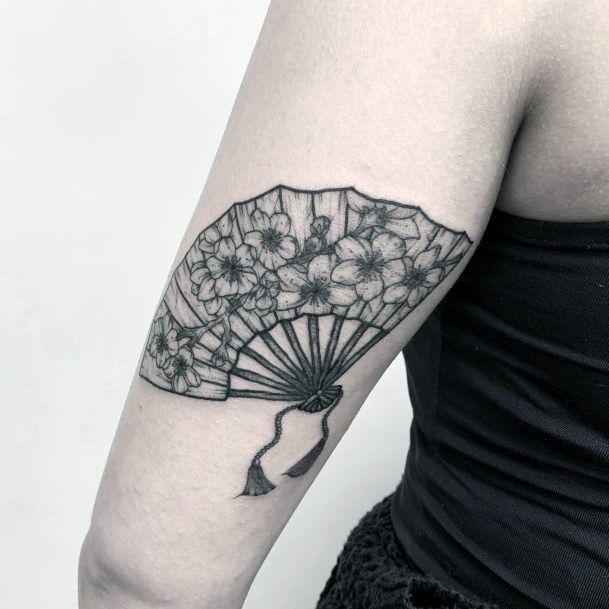
Uchiwa tattoo meanings and symbolism:
What do Uchiwa themed designs mean and symbolize?: Uchiwa are believed to have been originally used to drive away evil spirits, as well as to cool people during the hot summers. The rectangular-shaped uchiwa has become a symbol of Japan and is often seen at festivals, weddings, and other ceremonies.
The uchiwa is a beloved symbol of Japan for its simplicity and practicality. It has been used for centuries as an object of beauty with symbolic meaning. The fan-shape of the uchiwa has been used to represent the four cardinal points of the compass, representing each one of the four directions: east, south, west, and north. This symbolizes balance and harmony between different aspects of life.
The uchiwa is also a representation of Japanese culture. It is a popular item at festivals and ceremonies such as weddings where it is used to ward off evil spirits and bring good luck. The fan is said to represent unity and togetherness amongst family members or friends. Furthermore, the round shape of the fan is thought to represent eternity or infinity, suggesting that those who use it will be forever blessed with good luck.
The uchiwa is also important during rituals such as Kagura Shinto prayer ceremonies. During these ceremonies, the priest will use a fan to guide them through their prayers while they chant traditional Shinto songs. The fan is believed to be a tool that helps connect the divine with man and bring them closer together.
In addition to its spiritual symbolism, the uchiwa has had many practical uses as well. These include cooling oneself in hot weather or creating a breeze indoors during summer months when there is no air conditioning available. The design of the fan can vary from simple paper fans to ornately decorated fans made out of silk or other fabrics.
The uchiwa has been an enduring symbol throughout Japanese history for its versatility and its message of balance, unity, connection, and eternity. Although it may seem simple on the surface, the uchiwa carries deep symbolism and has been used for centuries as an object that conveys positive energy and protection against negative forces. It continues to be a popular item throughout Japan today and can be found in many homes and establishments around the country as a sign of good luck or simply for decorative purposes.
